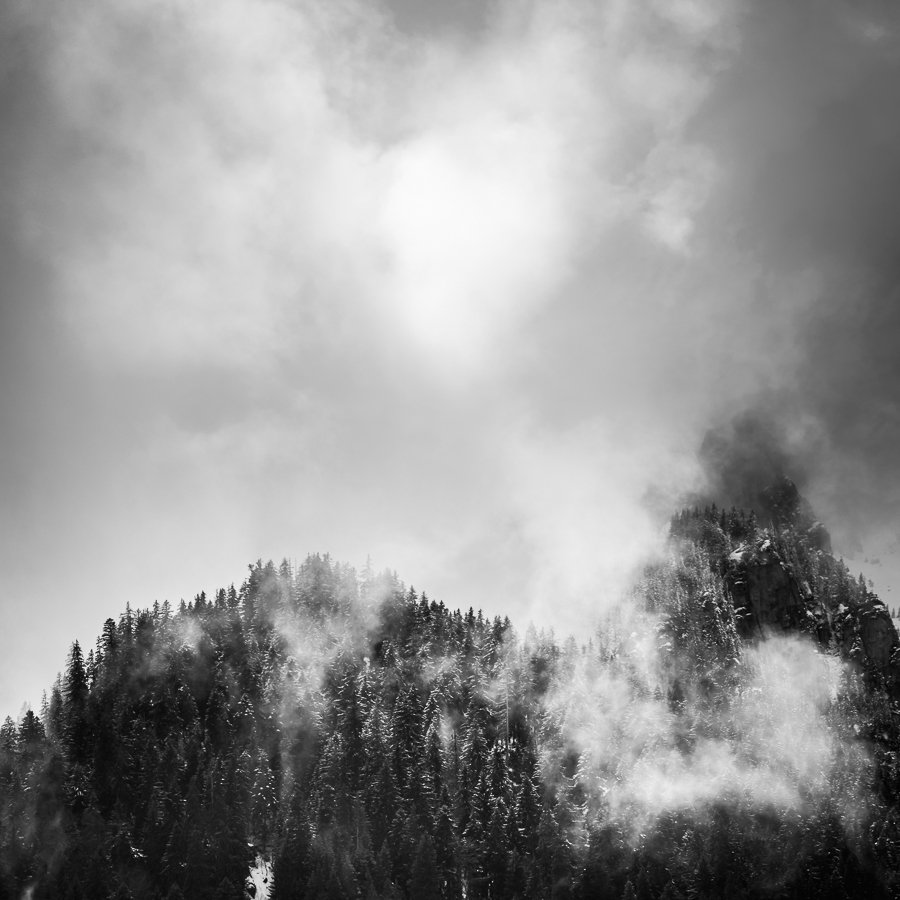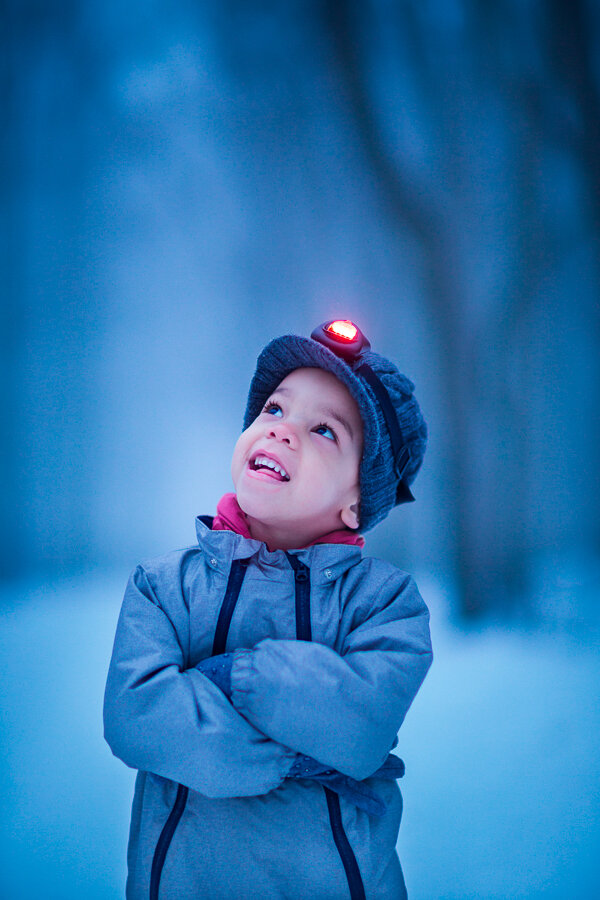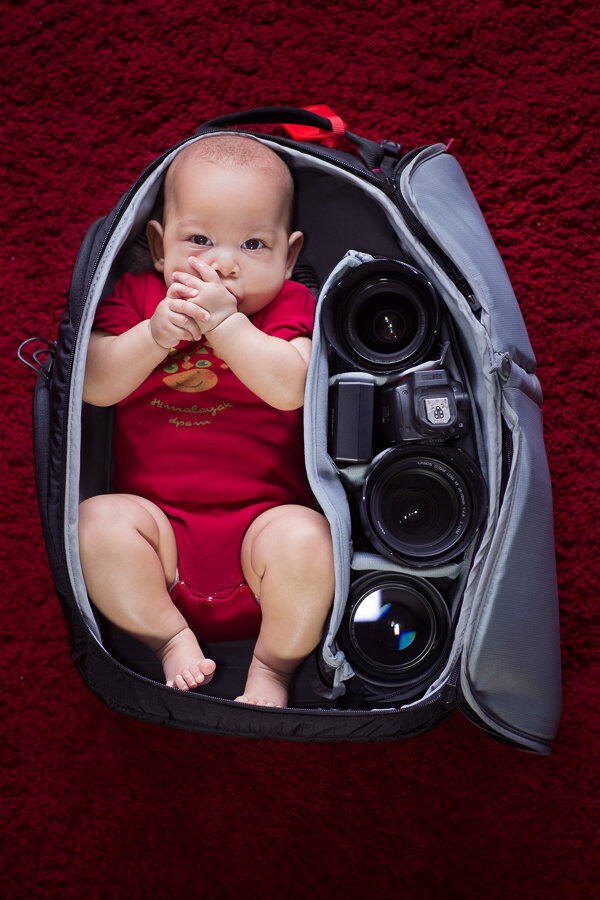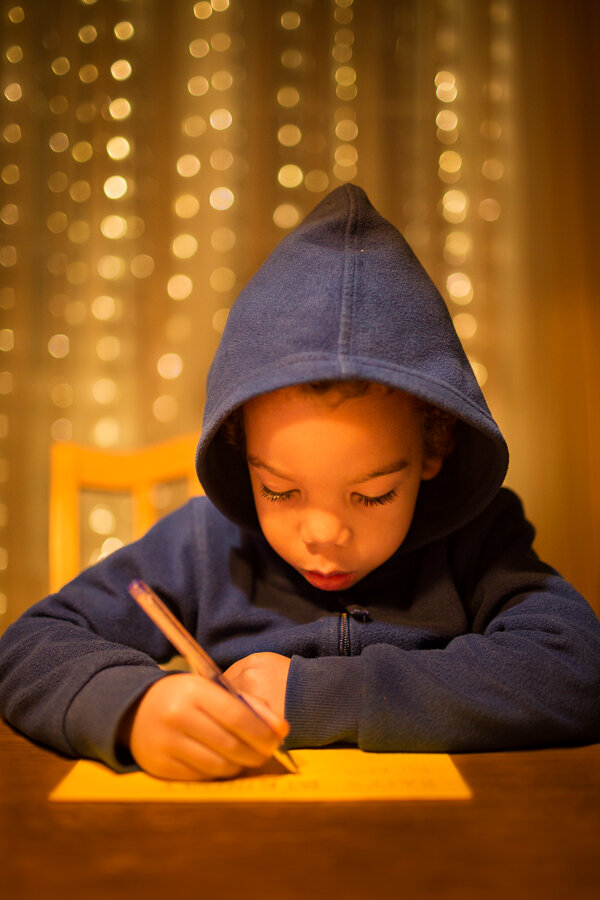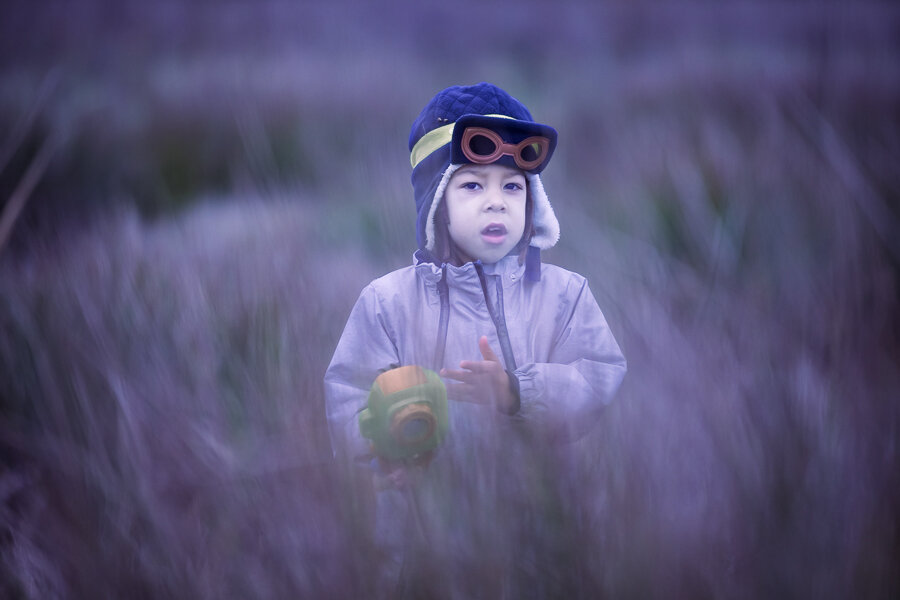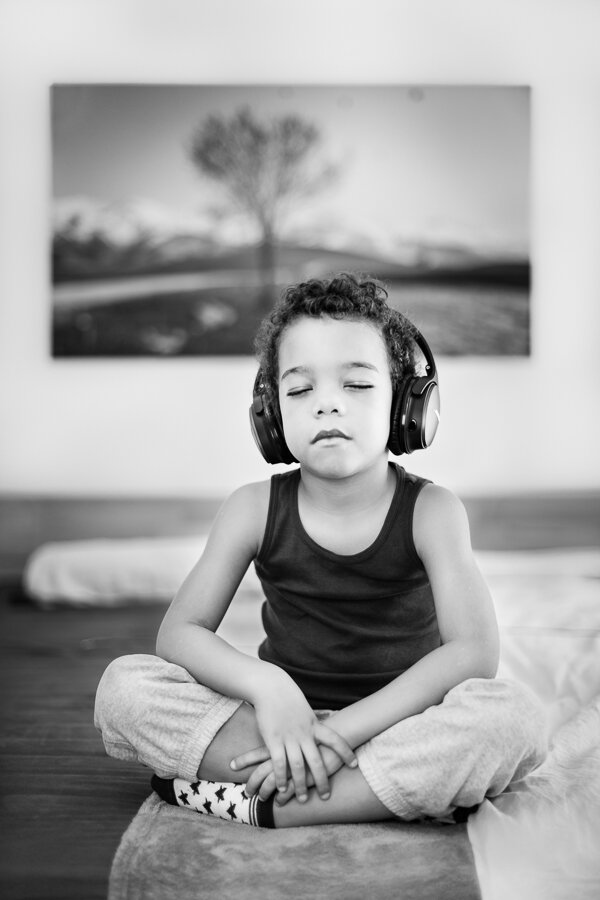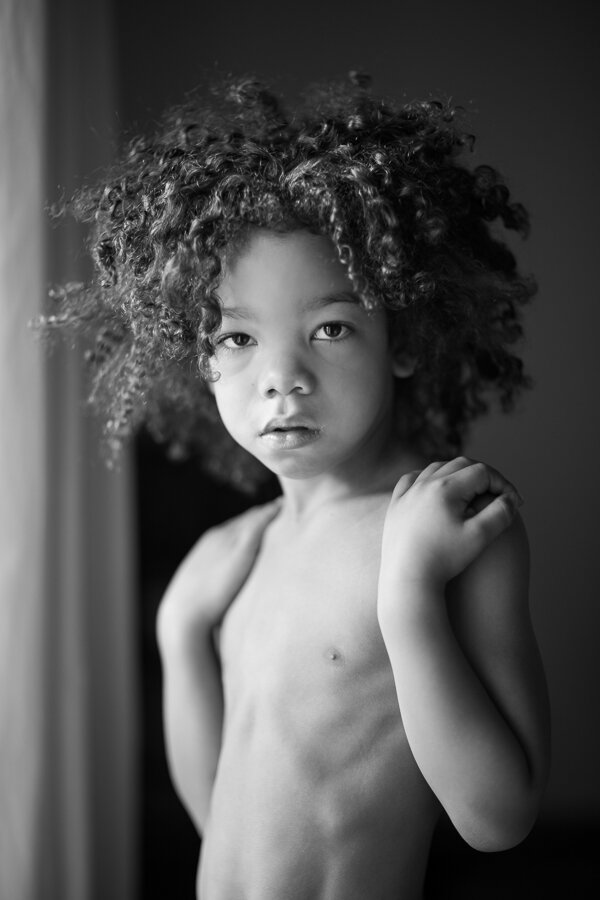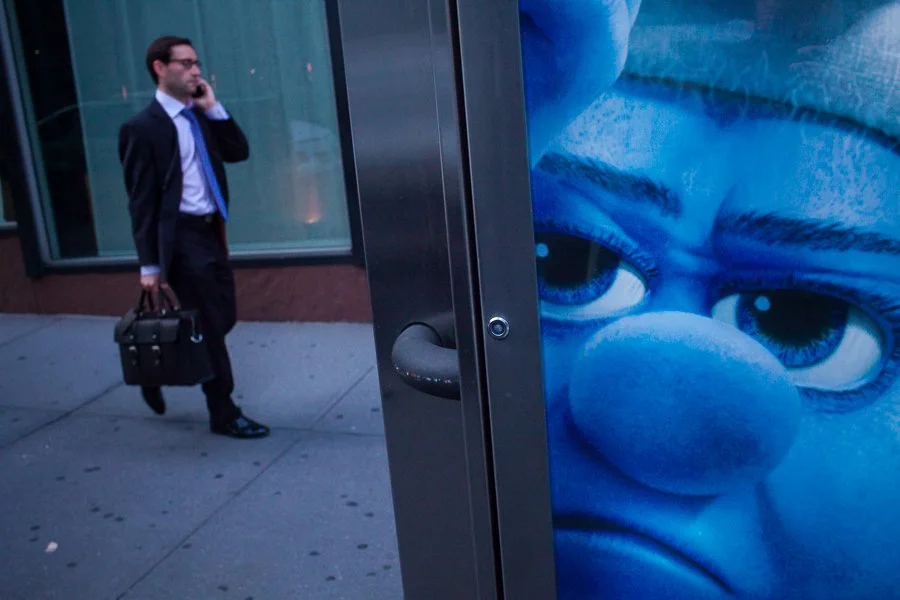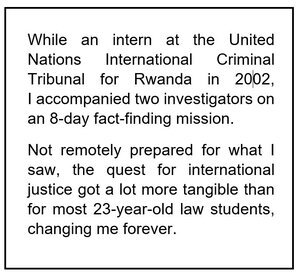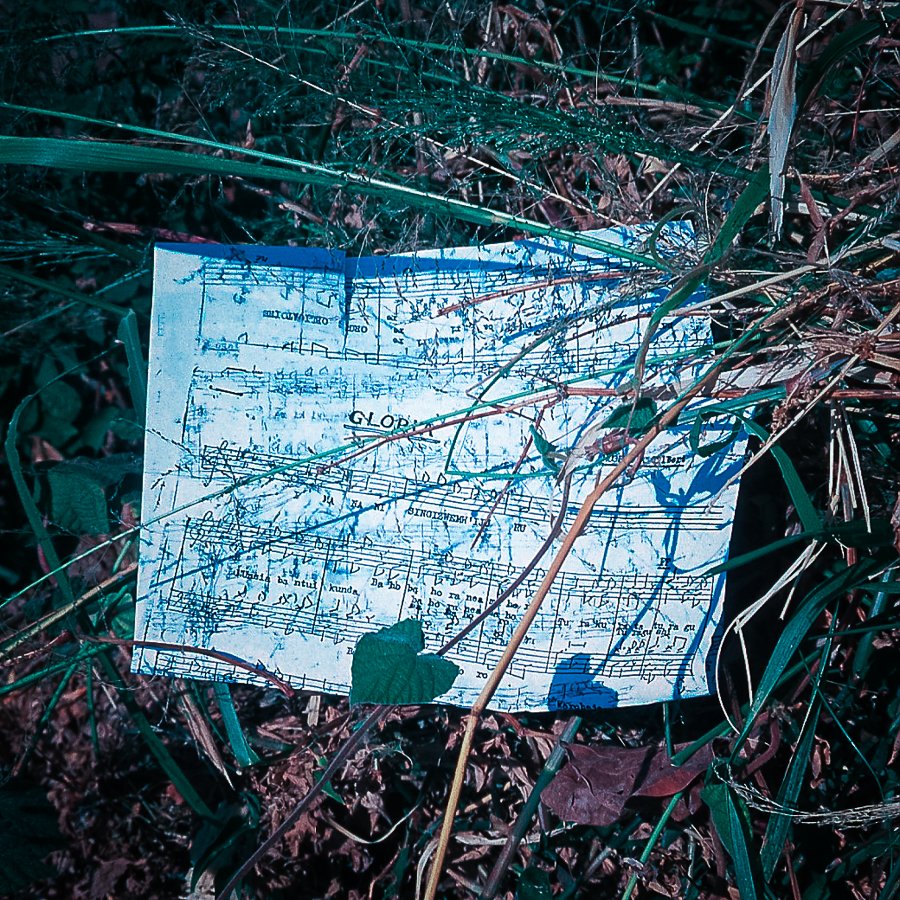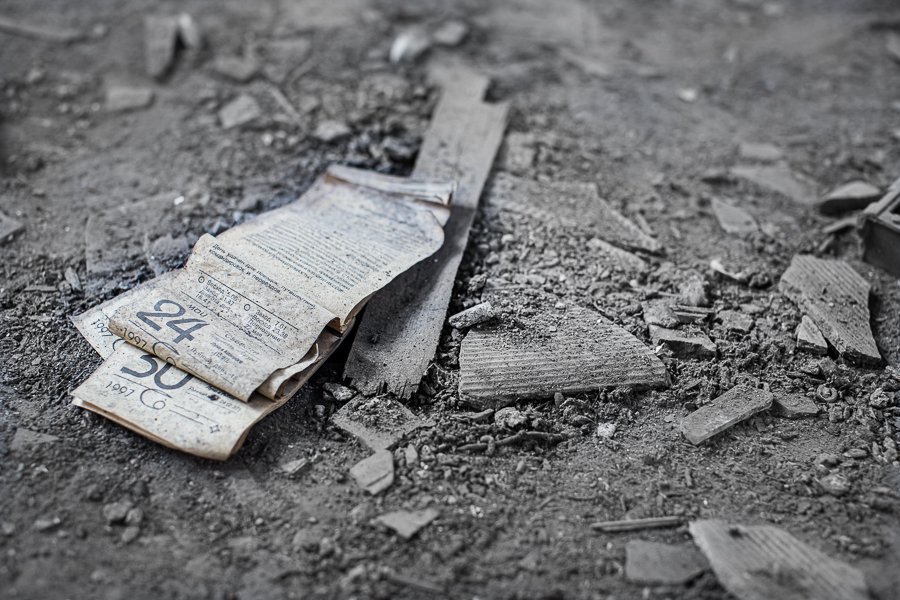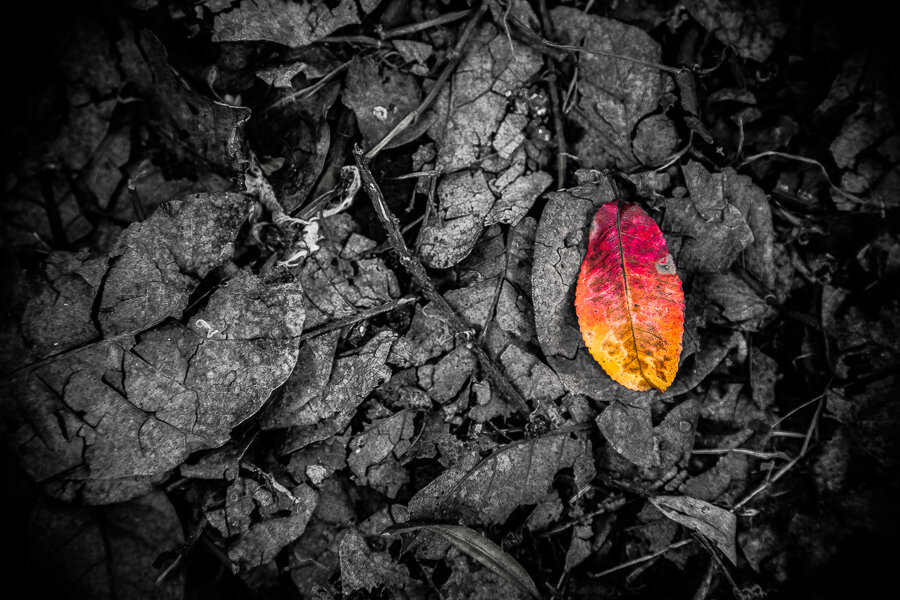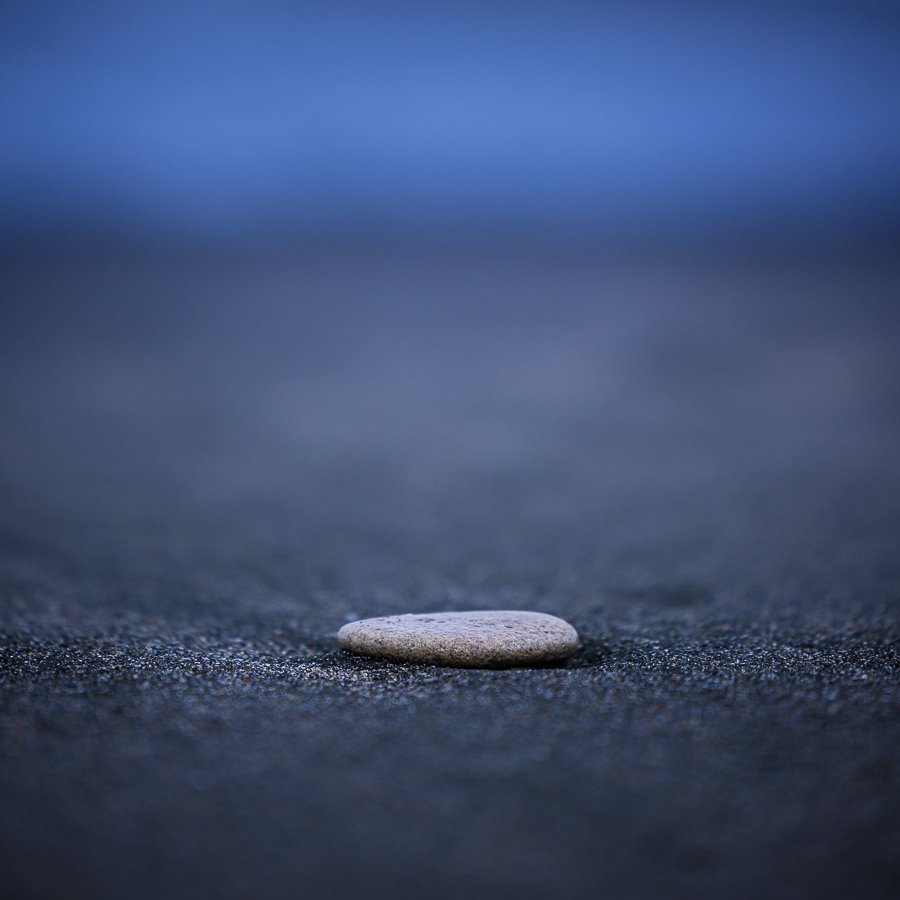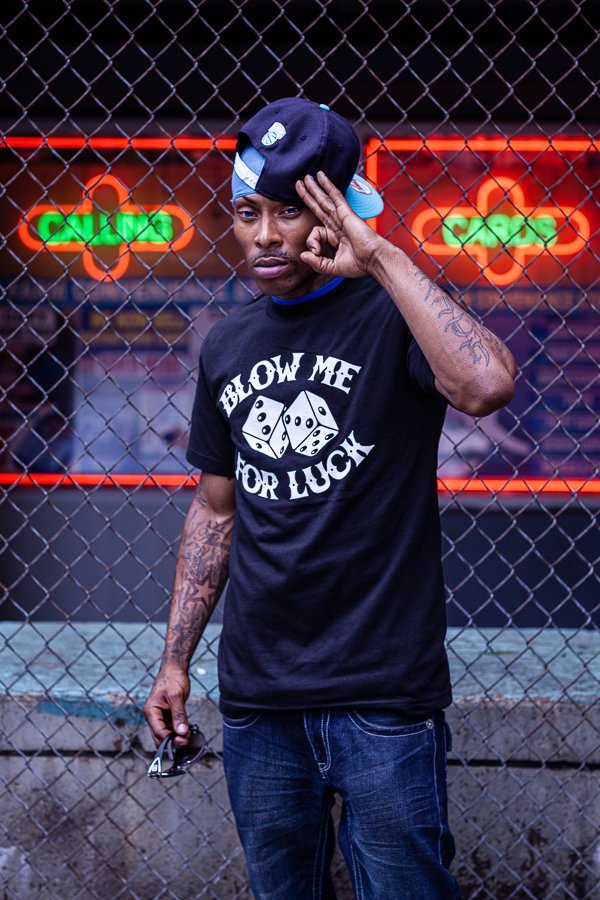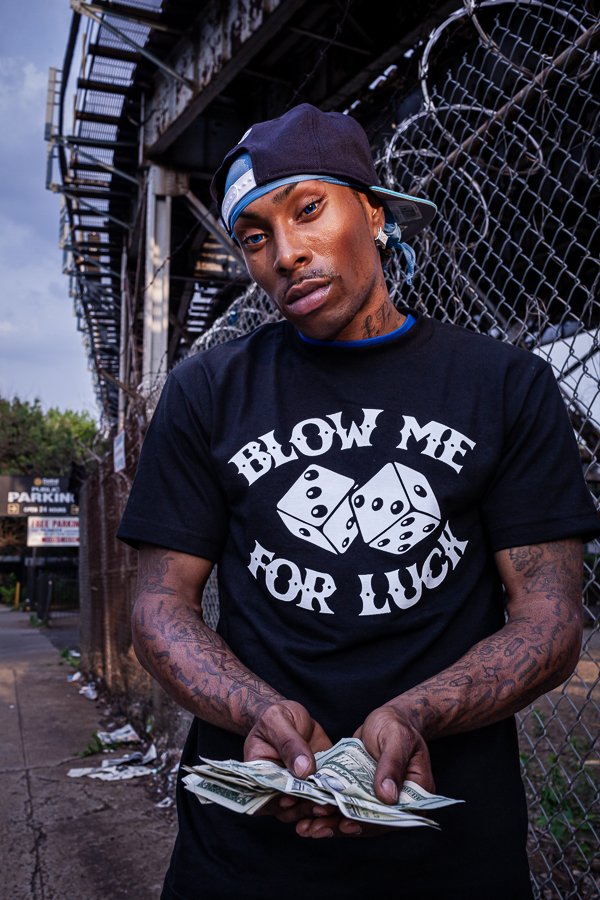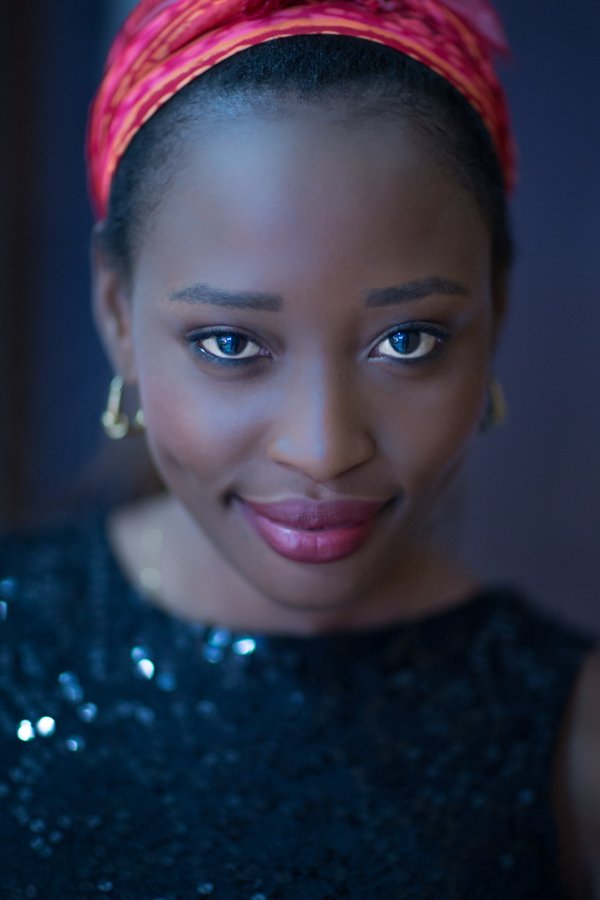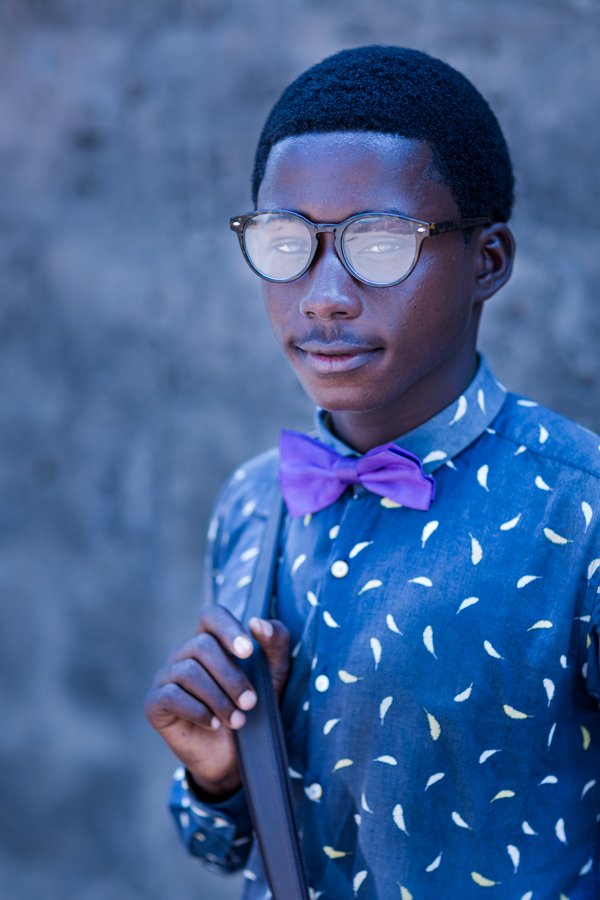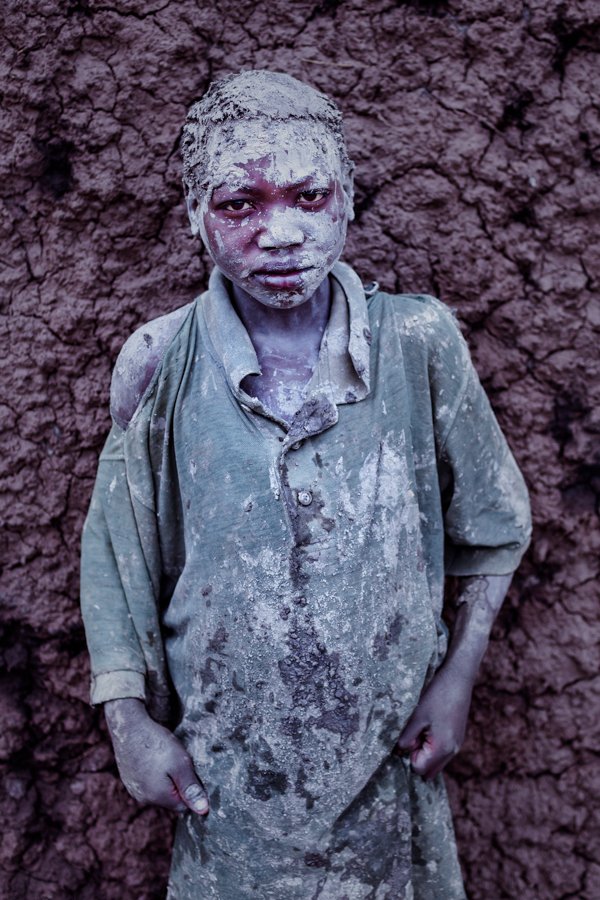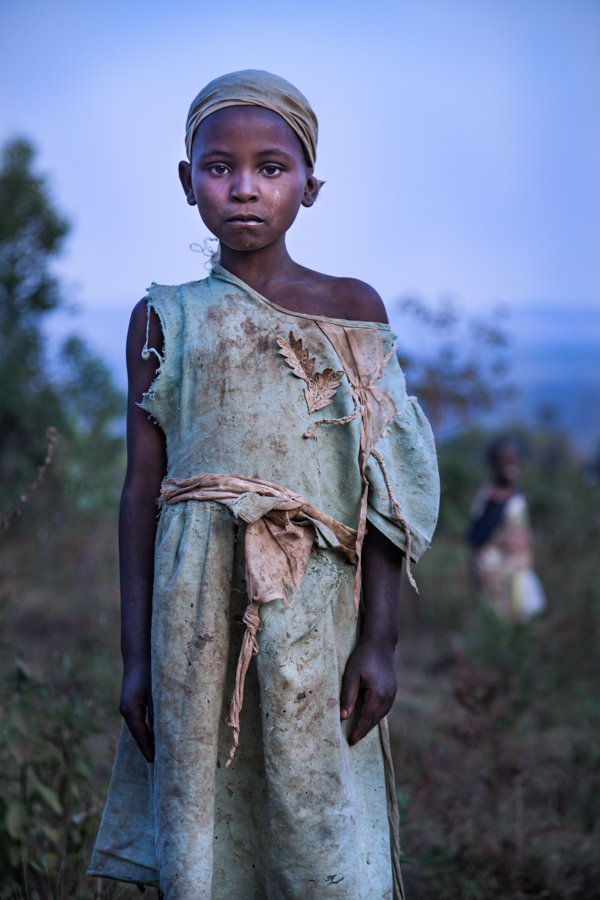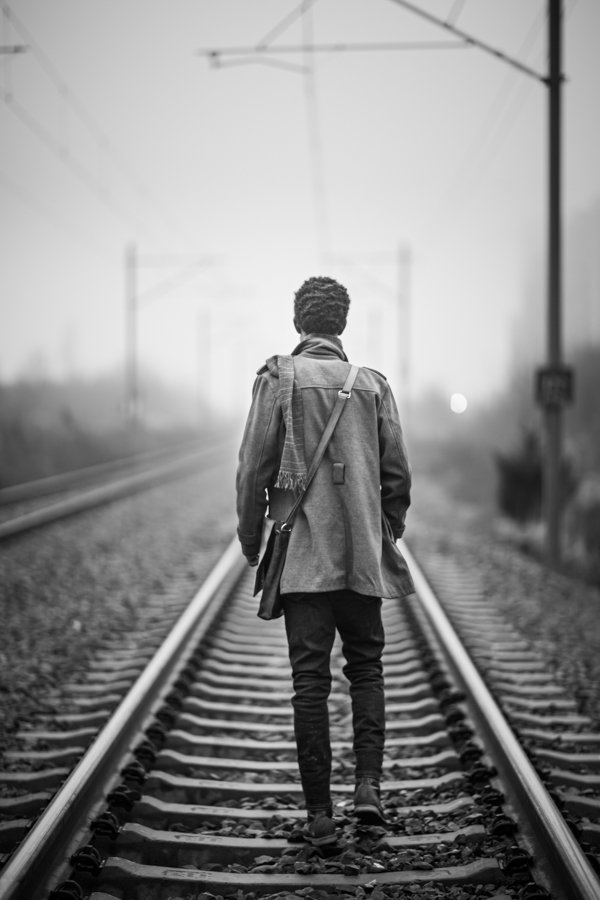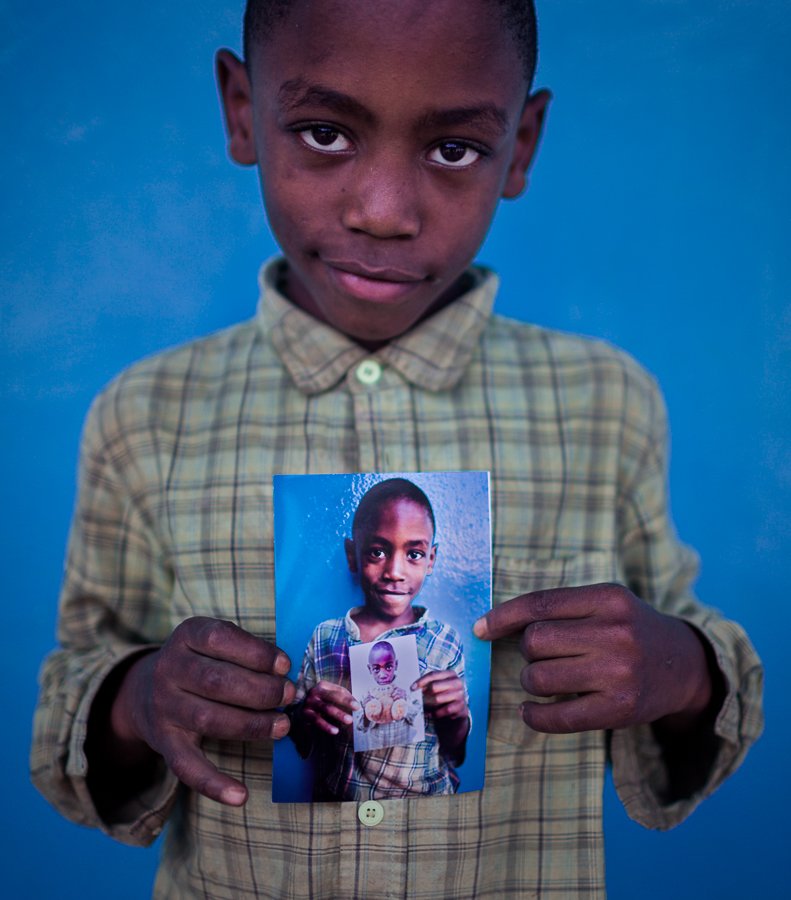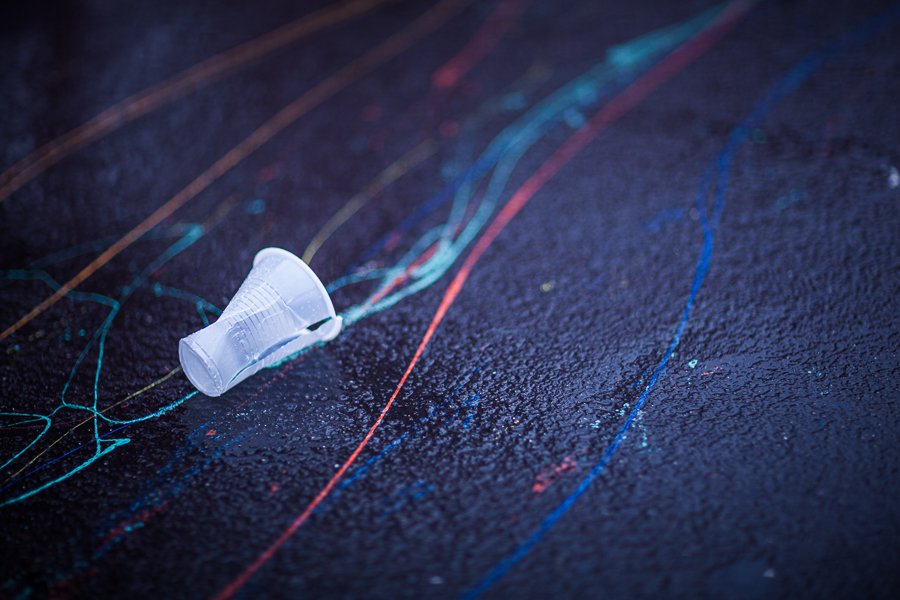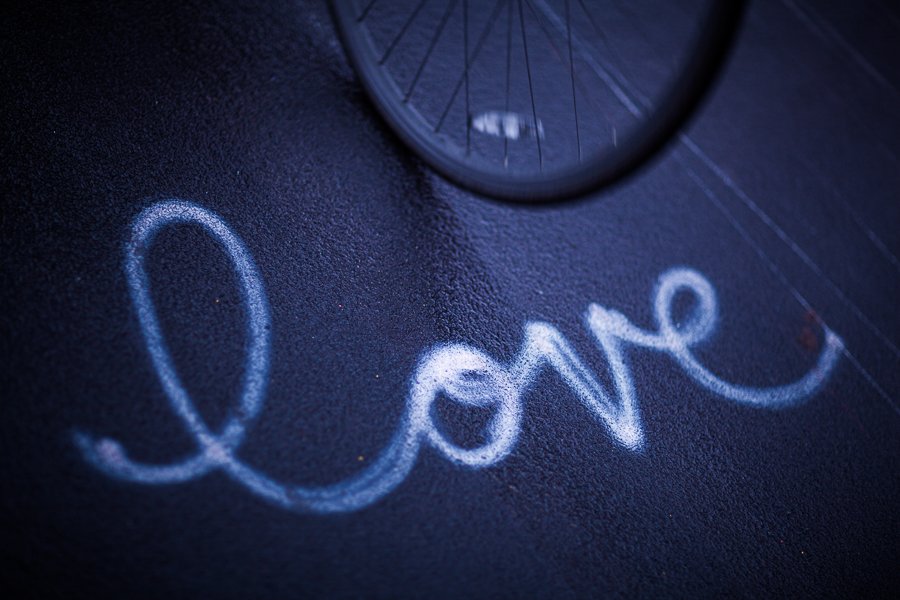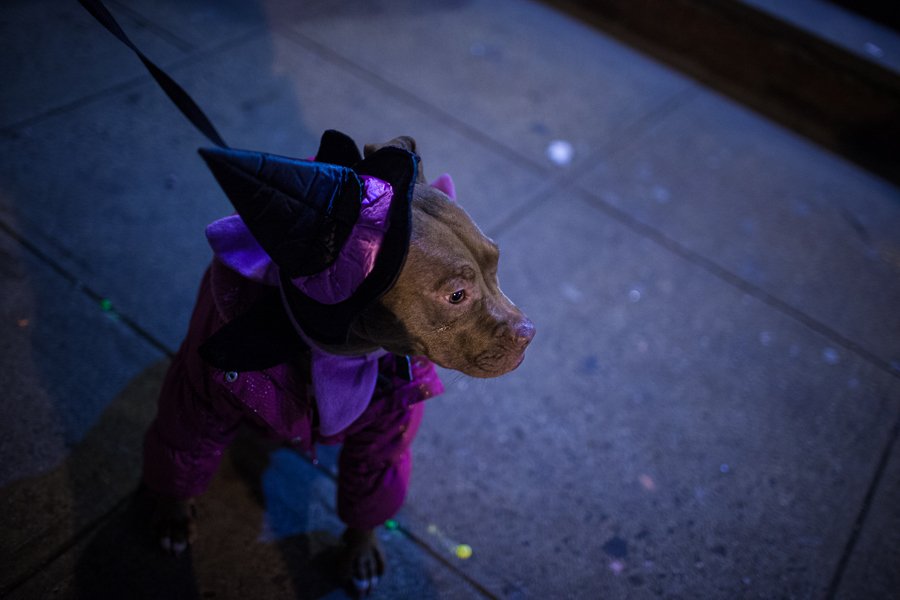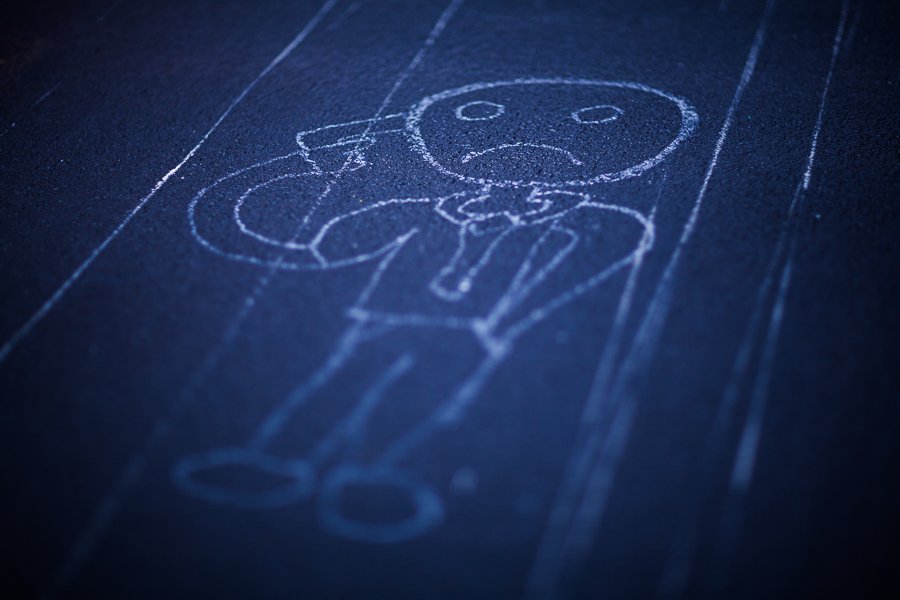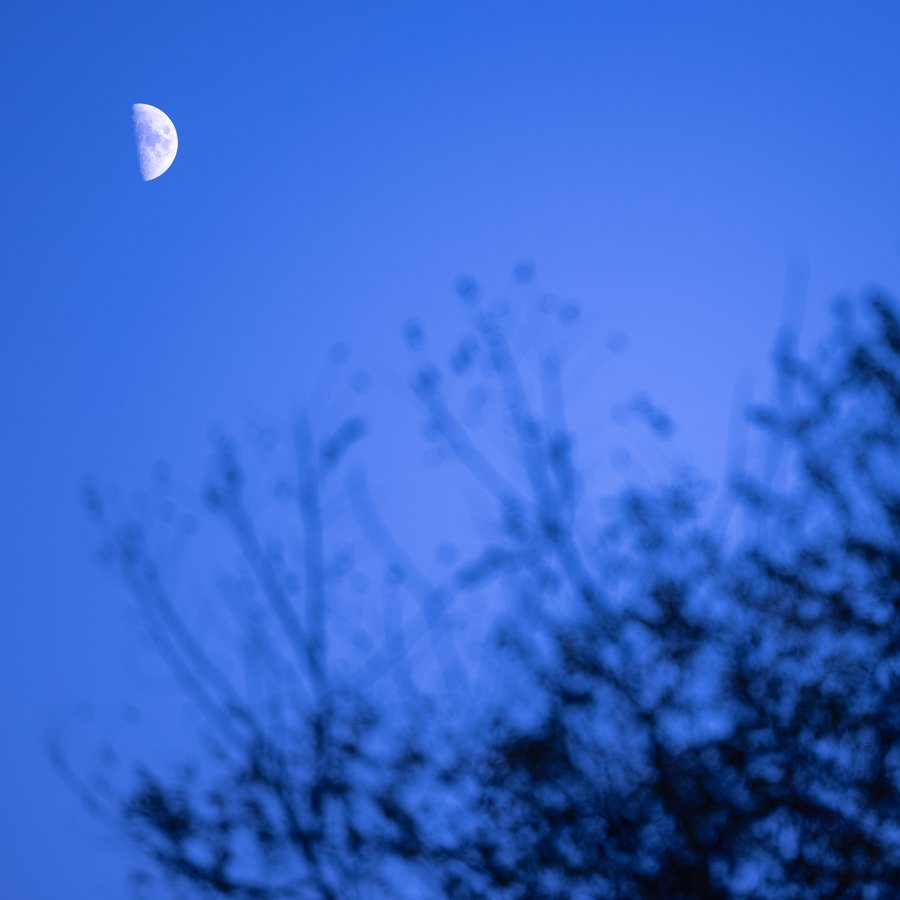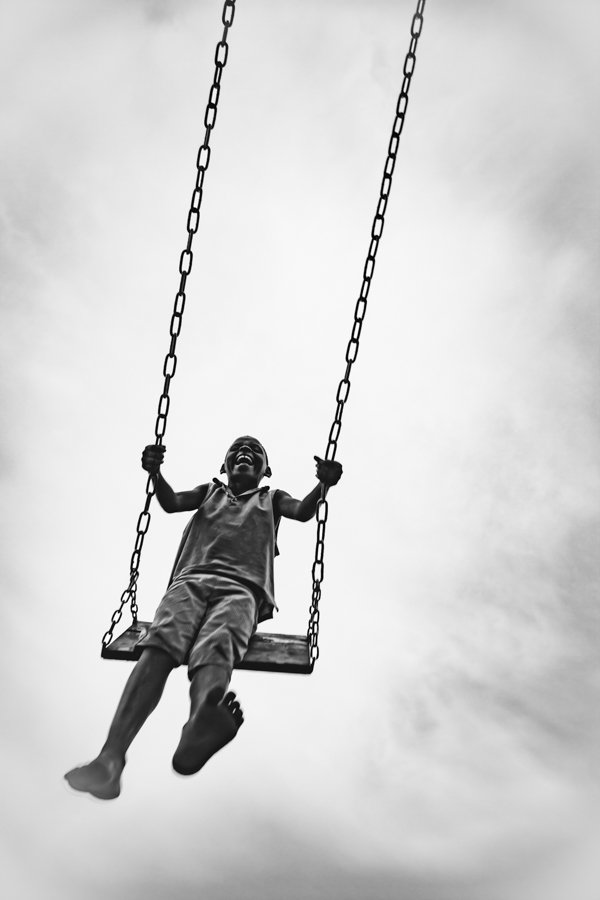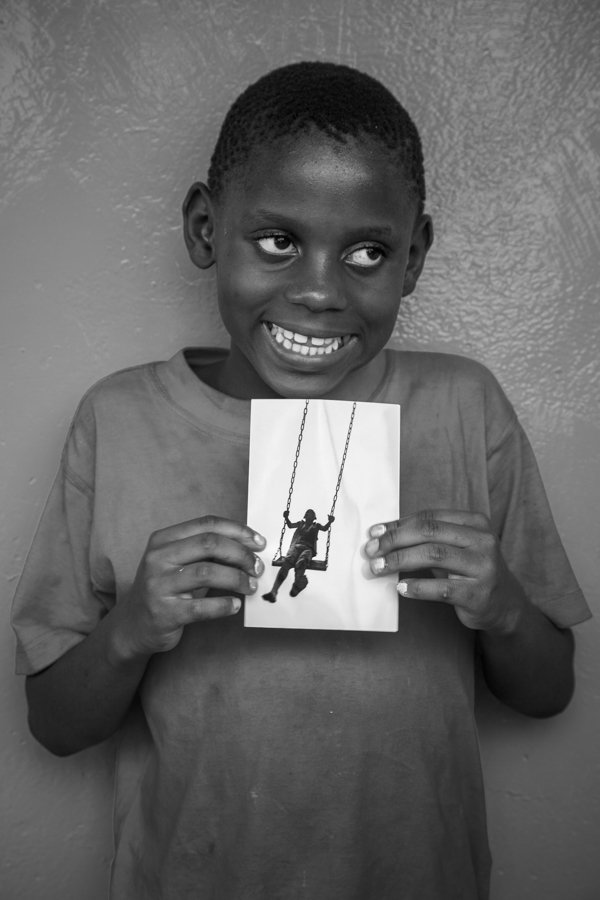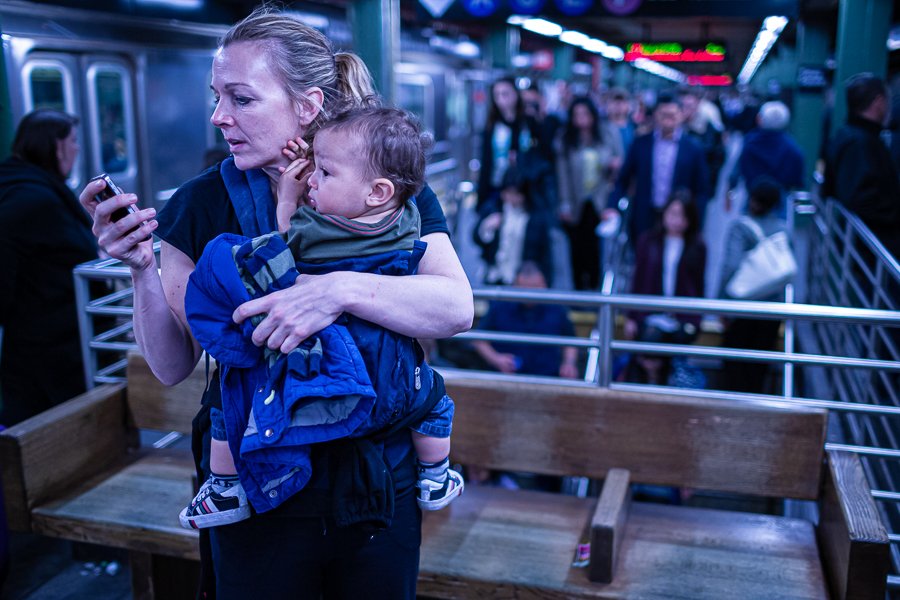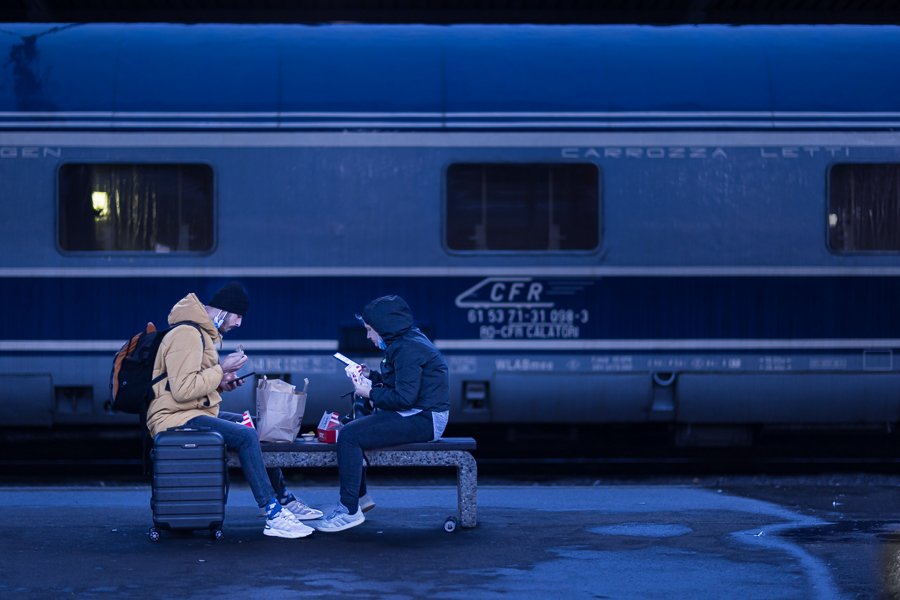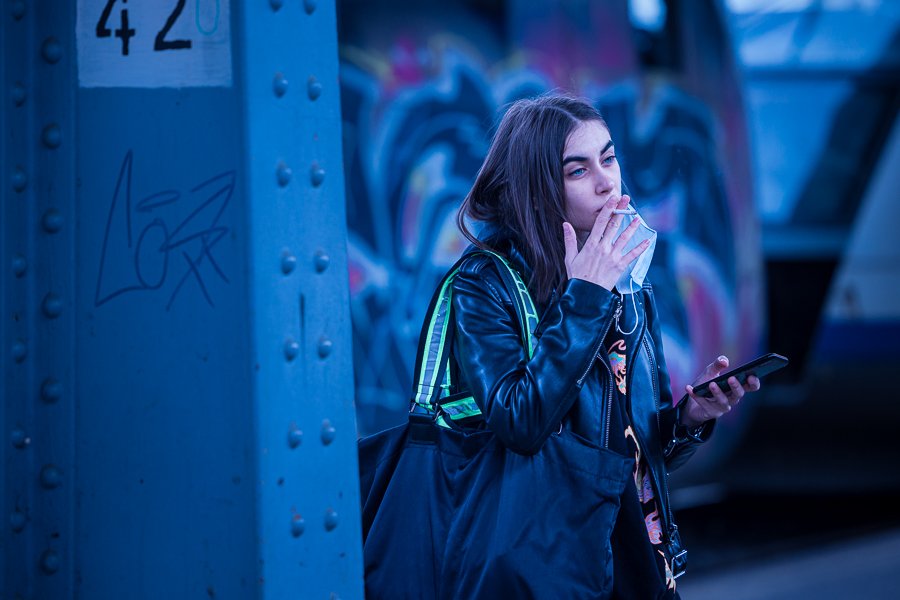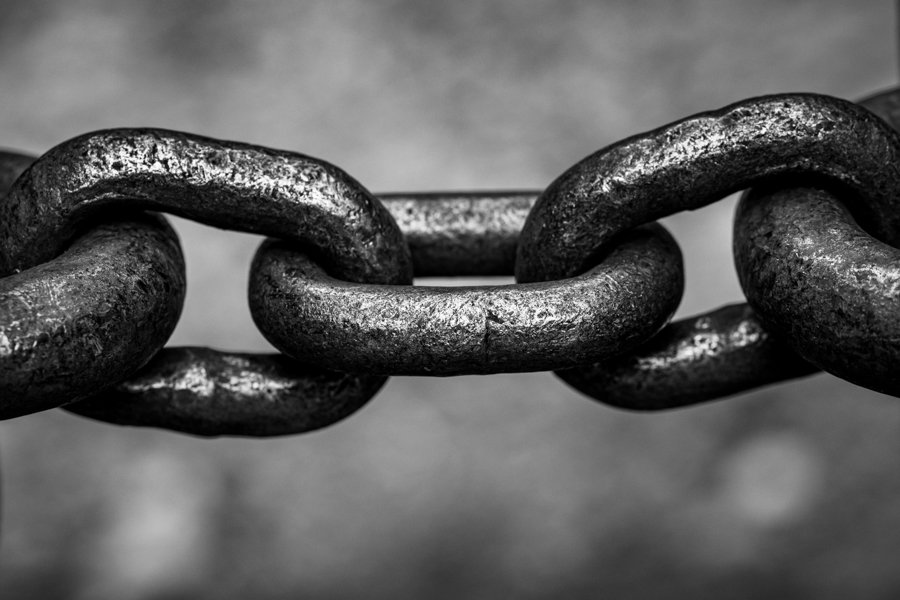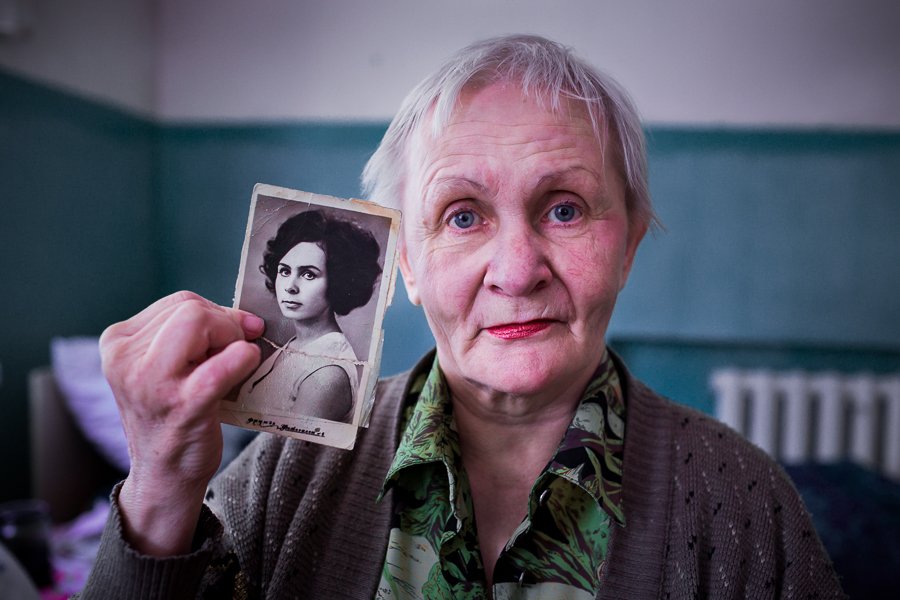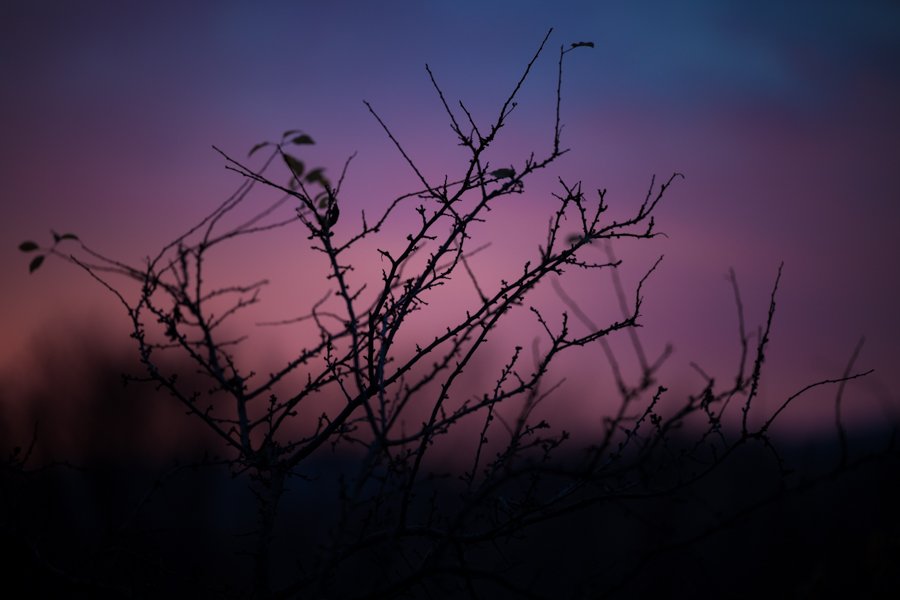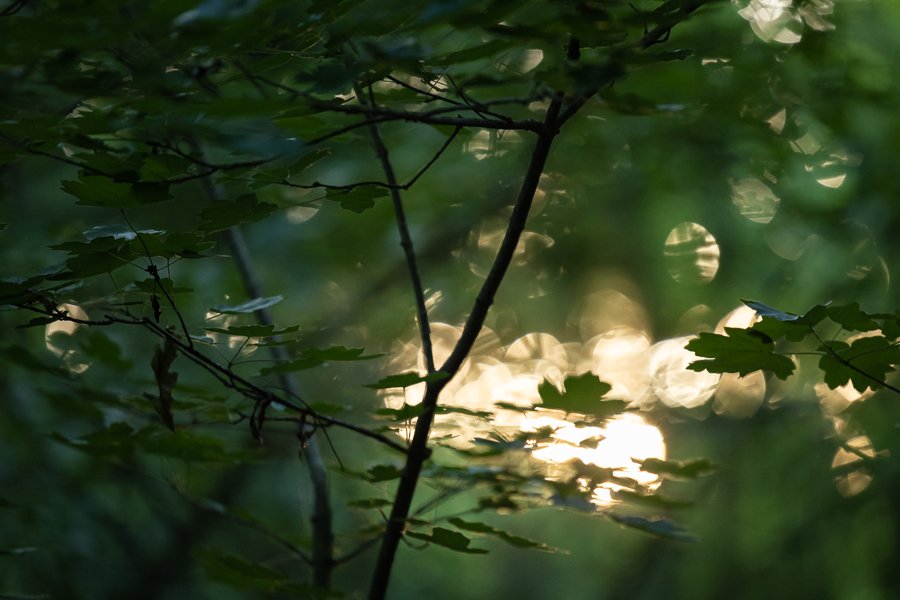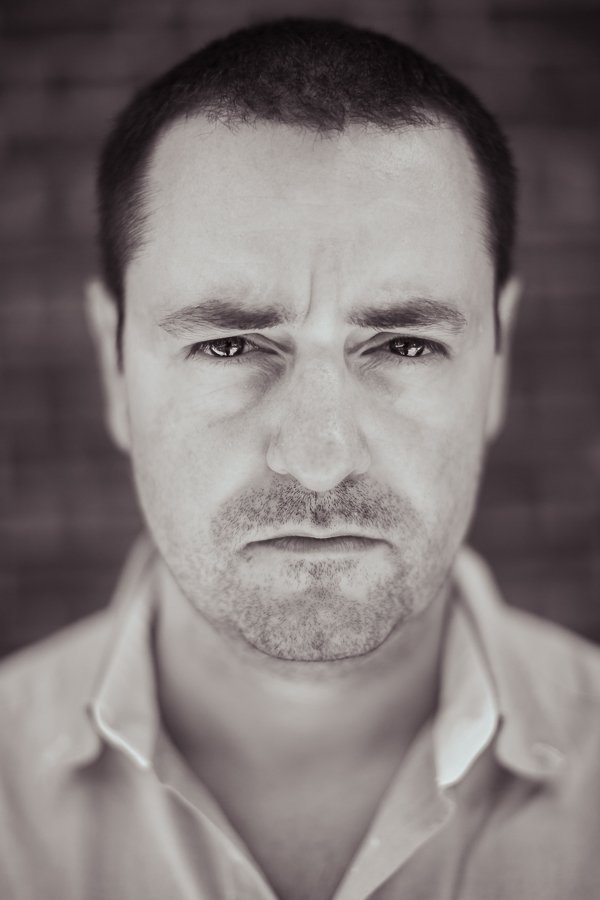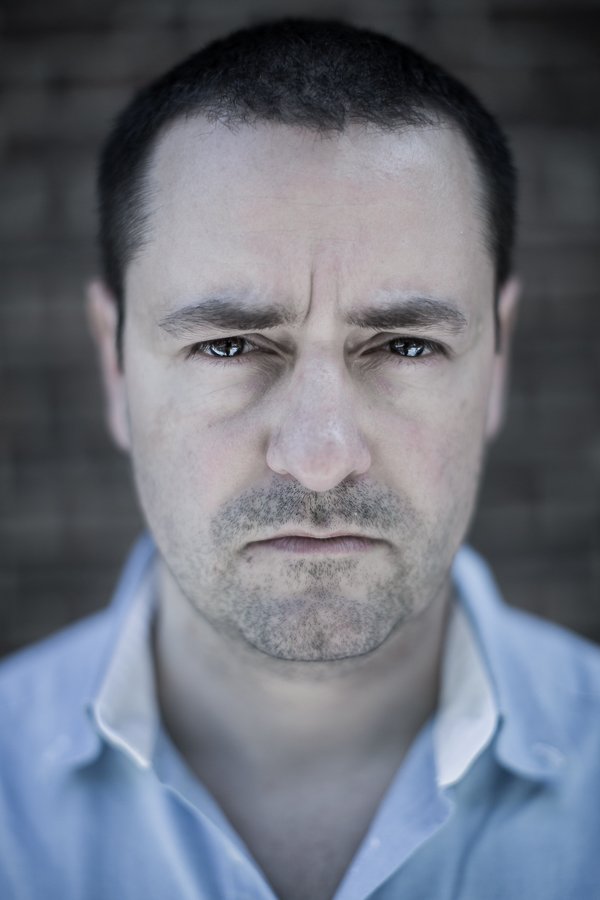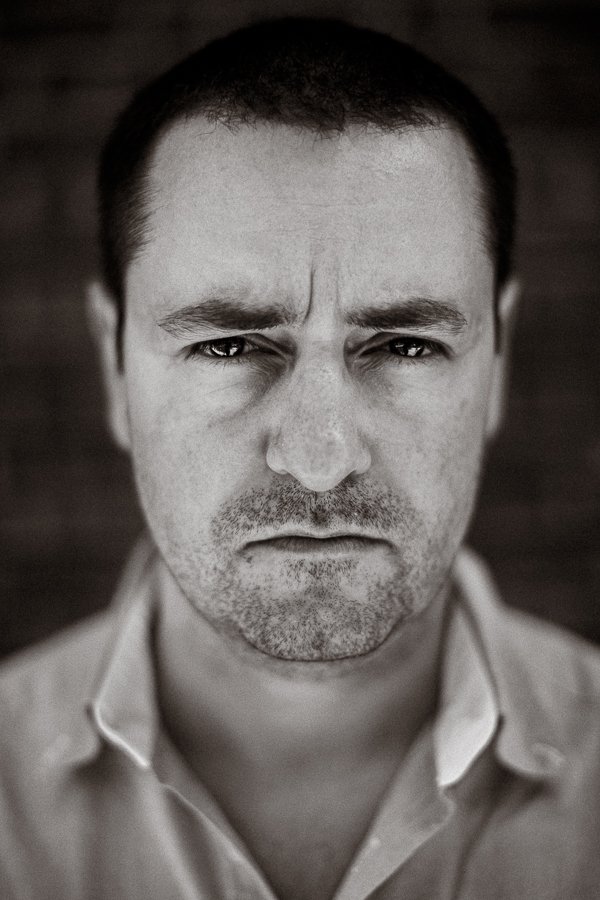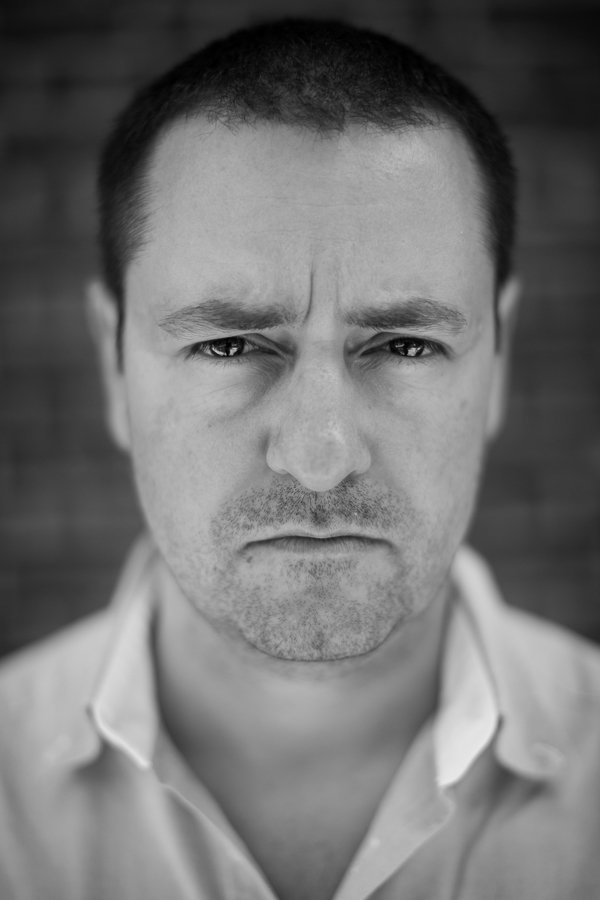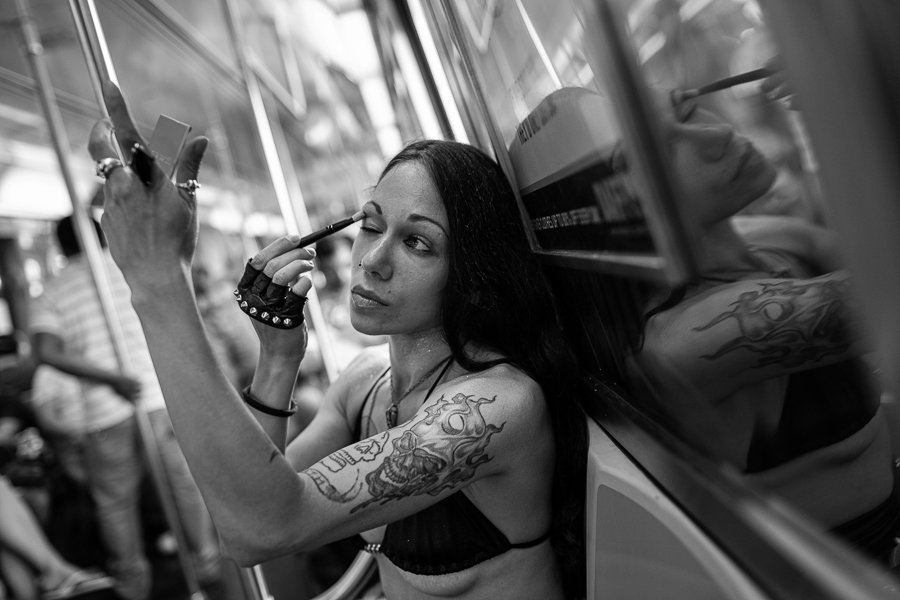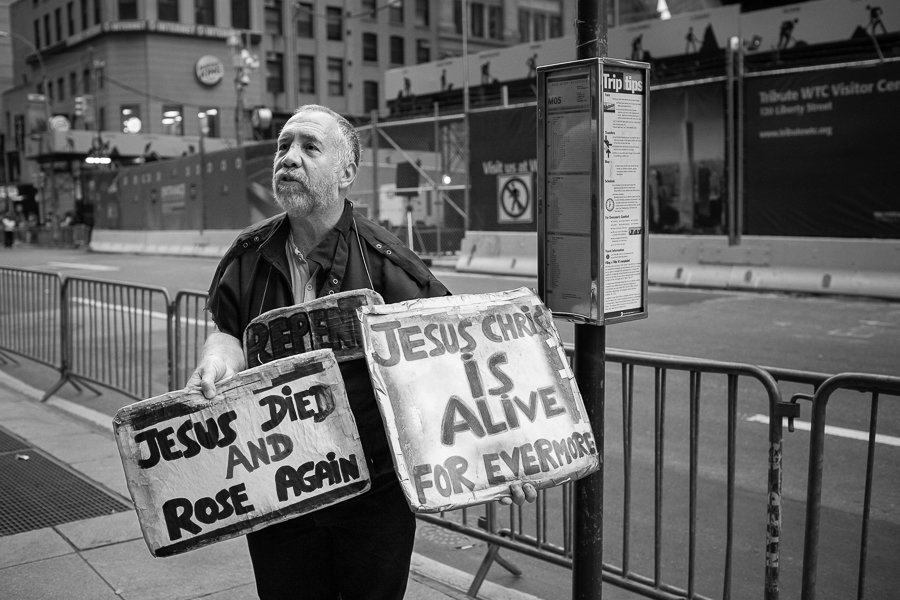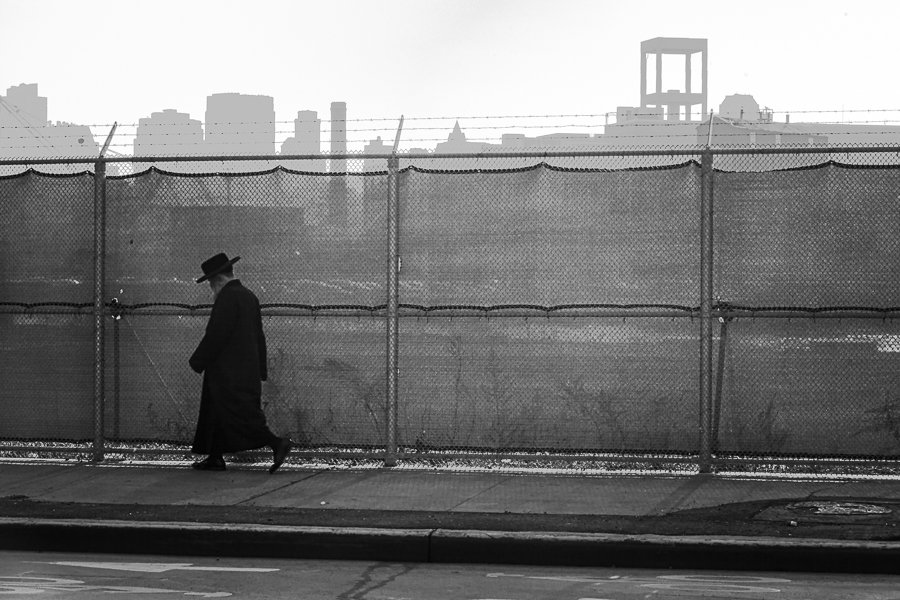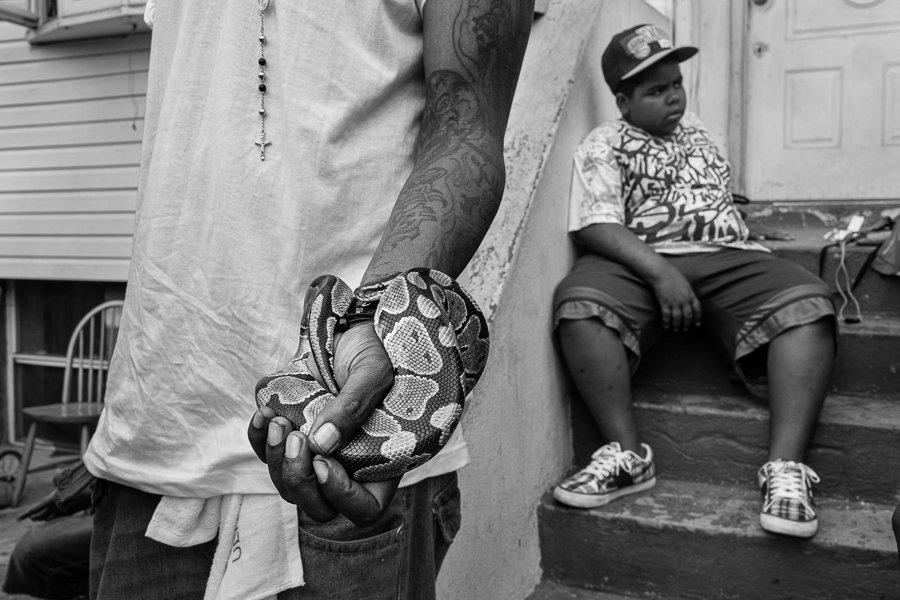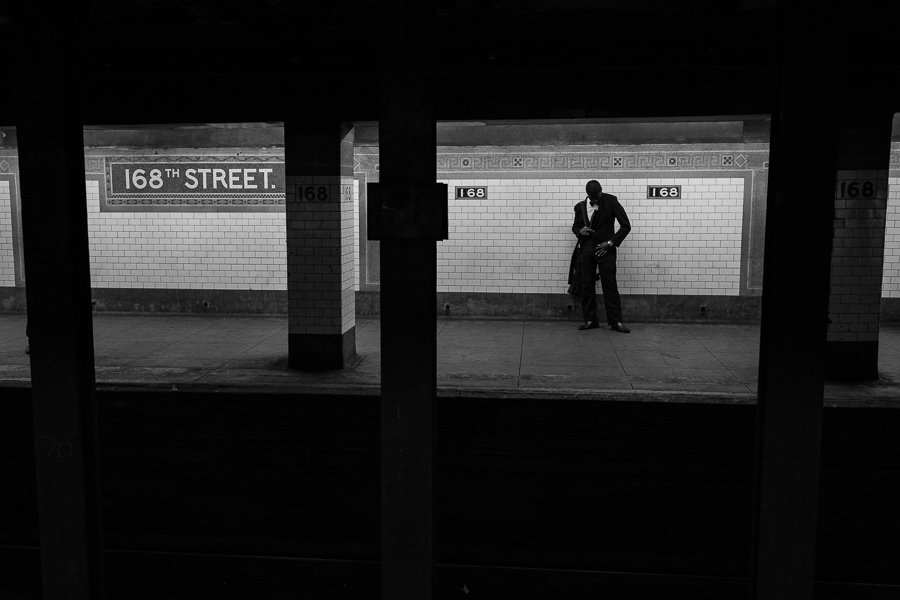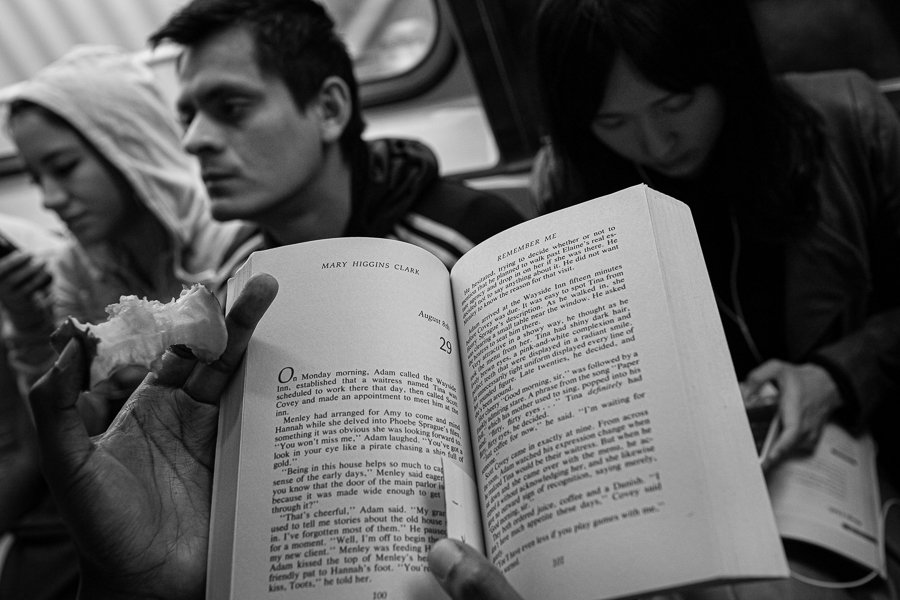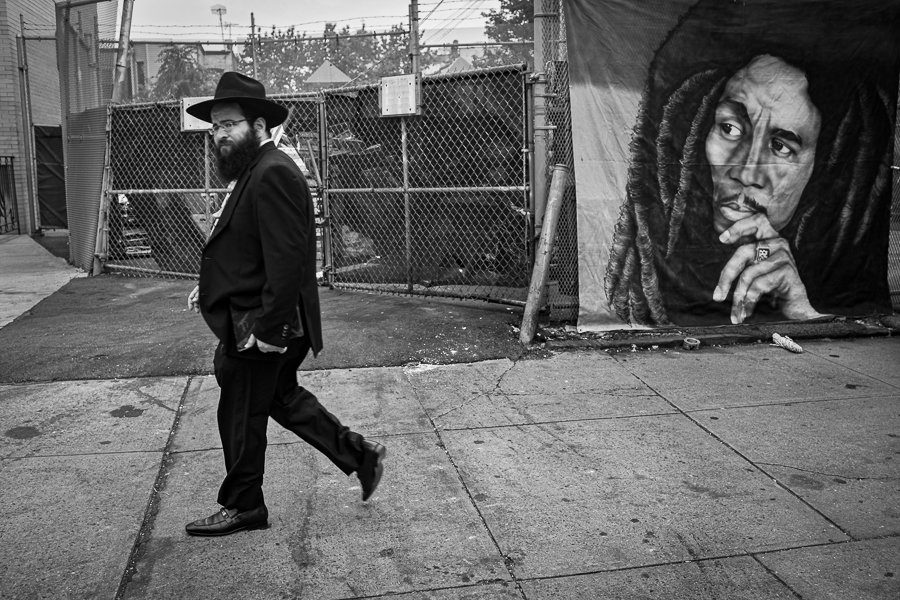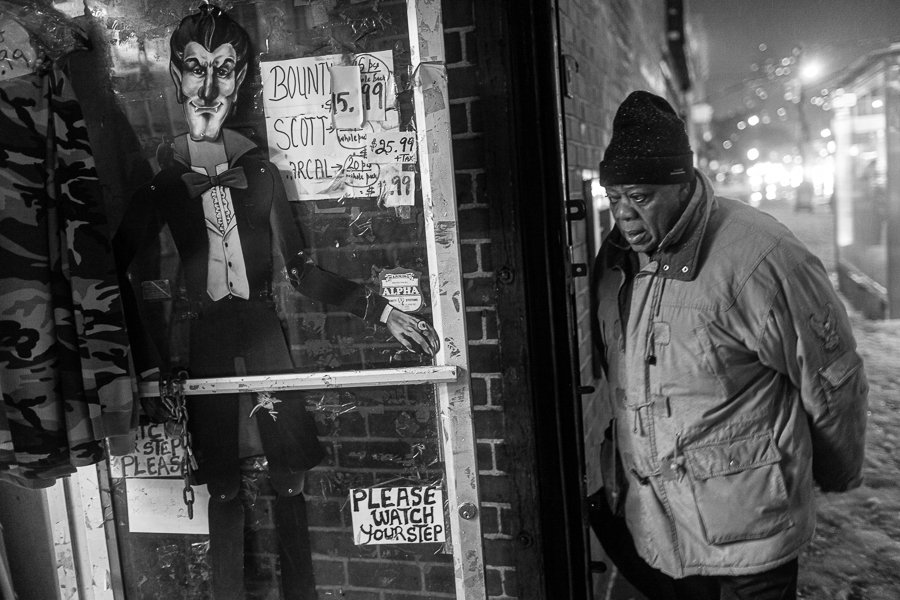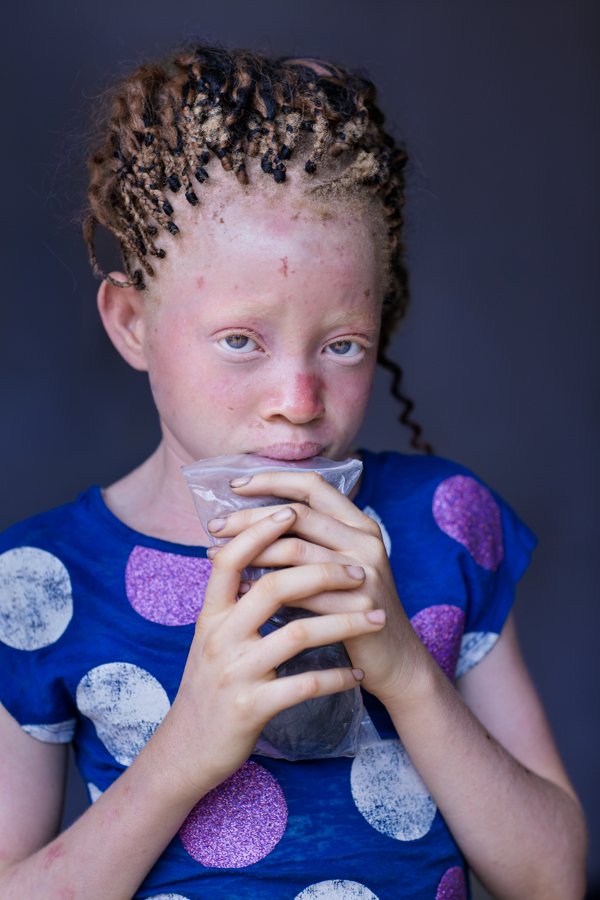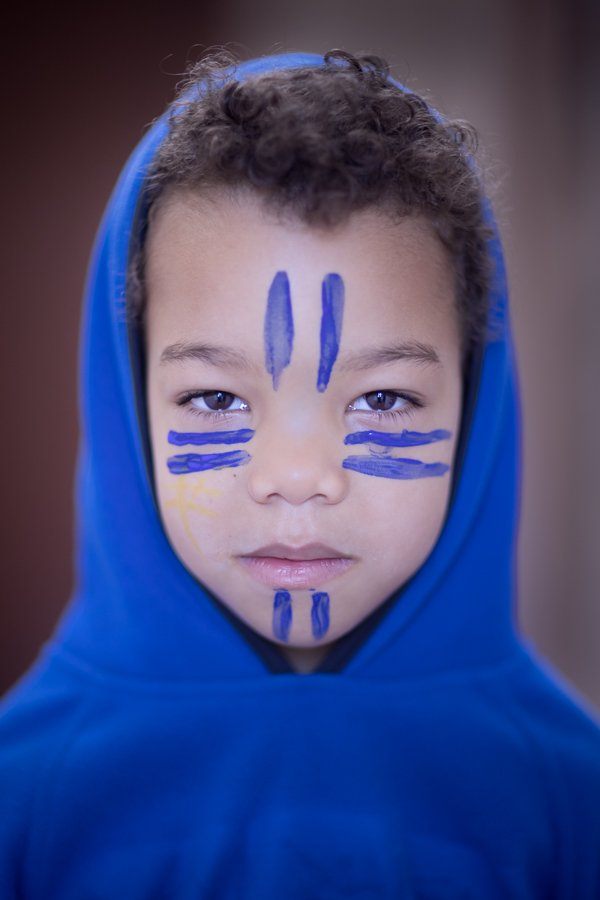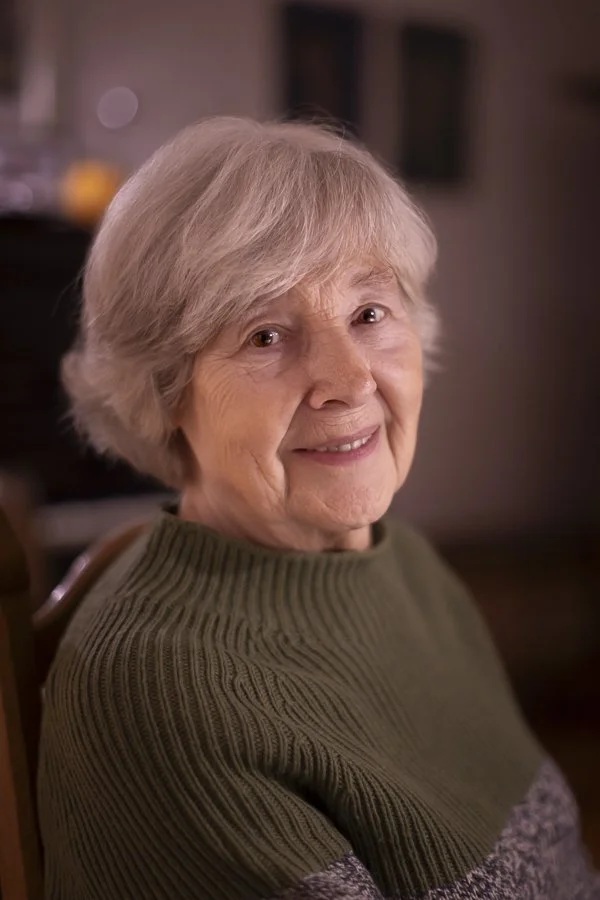Becoming less
Not too long ago when my son was four, he asked:
“Papa, what do you want to be when you grow up”?
I had no immediate answer.
Perhaps I don’t know yet. Although, probably the only answer is: myself.
I certainly haven’t figured out life but begin to sense it’s less about where I will be, but how. Less about the Zeitgeist and bucket list of things to do. Rather the block of marble to be chipped away from down to the core. Becoming less.
Less trash, more truth. Less Angst, more courage. Less wanting more, more letting go.
The other side of ego.
“Learn to be what you are, and learn to resign with a good grace all that you are not.” Henri Frederic Amiel
Early dew in Bran, Transylvania, Romania - offering a new morning, spring. 2021.
An act of love
The why of my photography, and writing? I’m still uncertain. Partly.
But I think it’s about becoming, which to me is ideally an act of love and a good dose of confronting fear and pain. And I like to believe my humble picture making is a telling indicator, offering a magnifying glass to what I want to be about.
Looking back, over the past 10 years, I have captured images in dark prisons and Kyrgyz Yurts. I spent days in retirement homes to portray a forgotten Soviet age. I pictured gang members in the Bronx, tried to visualize life and dignity in Burundian orphanages and brothels. I have sought to tell important stories – or let’s say that matter to me.
But I must concede my truest artistic endeavor is the enduring attempt to capture the love for my wife and children. My humble but earnest attempts to be a father.
And it makes perfect sense. My photographic vision has always been about people and emotions. How could I not frame the people I would die for without hesitation?
Pure. Love. My heart. Melting. My wife holding our daughter when she was just a few months old. River Congo and the lights of Brazzaville from across as backdrop, tenderness in the middle of a chaotic city. Kinshasa, DR Congo, Jan. 2017.
"Children are the living messages we send to a time we will not see." - Neil Postman
Slow
I am not on Instagram, Twitter, TikTok or anything else cool and fast, which could serve my need for social validation. If my photography is unapologetically about love, I want it to run deep, slow, in pace of peace, pulse of heart, not of algorithms that long for clicking.
So don’t expect weekly updates or timestamps here. I’m in this for the long run… my biggest dream being handing over an album to my kids that I’ll be truly proud of, with some 200 images from 30 years. And some logbook entries - from our voyage. Each with their own vessel, part of the same fleet. Not as their captain, rather as fellow traveler. Offering a glimpse of slices of light and time into their past, and thus my life, that I was fortunate enough to spend with them as they became themselves.
Some of my humble writing will try to note down the hard-fought and found truths of mine, hoping to inspire them. And perhaps the words of Charlie Chaplin will hold: “The deeper the truth in a creative work, the longer it will live.“ This adventure, growing into something more whole will take time, and more. Just like my two evolving miracles will need time to spread their wings, all while growing stable roots.
I have an important rule for life. Singing on a tree is considered an ideal option to spend your day any day.
Photographing is sometimes like dreaming with open eyes. Confining me to the present.
And sometimes it is bringing order into complexity. Like in a poem, distilling a novel’s content into a few condensed lines.
Why UNICEF
I have an adopted brother from South Korea, so he stood out at at a German school.
One of my early childhood memories is a fight when I was seven and he was ten.
He got bullied by five boys his age, seemingly twice my size. I still see them pointing fingers, laughing, calling him “Chinese guy with funny eyes”. I instantly felt a deep sense of injustice, an urge to protect, no fear.
Rushing into the circle of boys, identifying their leader while running, I screamed “THIS IS MY BROTHER” while my fist flew fast and furious into his face. He fell to the ground, bleeding, nose shattered. The group dispersed in surprise and panic despite my physical inferiority.
Did I get punished? No. Deep down, the boys understood they hadn’t been on the good side of things and didn’t report the holder of the iron fist.
The moral of the story: don’t you mess with my family or I’ll break your bones.
Joking aside: working for UNICEF runs very deep for me and my early urge to be a force for good is part of that identity. Protecting is about service to others - which makes me feel connected to something far bigger than my little self. The lived aspiration to an ideal.
And frankly, is there a better mission to serve than promoting and protecting the rights of children across the globe?
On field mission at a time of massive displacements and violence affecting children, families and communities; at the Mai-Ndombe Kwilu River, Bandundu province, DR Congo. 2017.
Have looked at this image for years… and I still wonder what Benny had in his heart in this moment.
Benny
Among the 56 children that lived in the orphanage of Jabé in Bujumbura, Burundi, in 2009-10, there was a small boy called Benny.
During my roughly 20 day-long visits , I found great attachment to all the children; but it was Benny who truly melted my heart.
It was him who I found most difficult to leave behind.
Wanting to tell his and the other children’s stories is the reason why I started photography, why I got emotionally hooked. Forever.
Mtoto Benny, ndagukunda cane rwose, je t’aime, I love you.
Ordinary miracles
“The whole world
is a series of miracles
but we're so used to them
we call them
ordinary things.”Hans Christian Andersen
Watchtower and fences, military camp around Casablanca, Morocco, July 1943. Original paper photographed.
Camp in Bou Arfa, Morocco, as seen by my grandfather, August 1943.
My grandfather and father during a home visit, ahead of being captured.
A young couple in happier pre-war times.
Creative survival – meaning in making
My father’s father was a radio operator during the second world war.
Stationed mostly in North Africa, he was eventually captured by French troops.
Kept as a prisoner of war for years in the deserts of Morocco and Algeria, he would return when my father was aged nine.
I wonder what their absence did to them, both. Living with dreams and imagination, longing and uncertainty.
When he could, while being moved from camp to camp, my grandfather turned to drawing and painting (the latter with dirt, toothpaste, green leaves and anything else he could find) – I assume as a way to mentally and emotionally withstand, endure, persevere, survive.
To deal with the traumata from seeing man killing man, torture and destruction, all while being kept in limbo of hope and despair for what must have felt like eternities.
Perhaps tormented even more as he had never believed in the despicable Nazi ideology; having had to leave home (where he was a gardener by trade) not by his choice, used in a wicked game of others.
Often times, I have wondered why photography - painting with light and shadow - and exploring the world through personal stories resonates with me so strongly. Why it was Benny who first offered me the gift of finding a creative outlet to some of my pain; meaning in making, healing in making, voicing what I may be unable to express otherwise.
My father was born just months before the 2nd World War broke out.
Given his father’s long absence, he was practically a half-orphan up to the age of nine. Then, he lost the better part of his mother to a life-long severe depression.
Perhaps there is a deeper connection than I’d like to admit to my overwhelming empathy for those who grow up without parents, and must feel being abandoned, left behind?
“Mein Schlafplatz”, my grandfather’s bedside in one of the camps; “P G” standing for “prisonier de guerre” (prisoner of war). Ram Ram, Morocco, 16.9.1945.
writing with light - visual poetry
inclusion
abandon absence abundance acceptance accord agreement amity animation appreciation articulation awareness
balance being belief
calmness candor chaos closure communication completion complexity composure comprehension connection consistency conveyance conviction courage craft
decisiveness dedication detail design detection devotion diction discipline discreetness distinctness doubt
evocation excitement existence expression
failing faith feeling finality focus formulation frankness fulfilment
gratitude gentleness goodwill guess
harmony humility hurry hypothesis
idea imagination ignition illustration imperfection independence inevitability indication individuality innovation inspiration intention introversion
life light love luck lumen
manifestation mindfulness miracle modesty movement
norm notion nothing
observation occasion openness opening order originality
pace passion patience peace perseverance persistence personality play poise precision presence purpose
questioning quietness
realization reconciliation recognition representation reservation resolution respect restlessness rhythm
seizure serenity shutting silence simplicity shadow softness space standard statement stillness submission suggestion surprise
taste technique temperament tension termination time touch tranquility trust
uncertainty uniqueness urgency
vision visualization voice
exclusion
Morning ice . It disappeared minutes after, as if to confirm Hemmingway, who wrote “a thing is true at first light and a lie by noon.“ Maramures, northern Romania, May 2021.
Walking into the light, perhaps leaving behind a dark past - yet making steps towards hope, a new beginning?
Plutarch comes to mind: “Painting is silent poetry, and poetry is painting that speaks”.
Bugarama, Bujumbura rural, Burundi, January 2010.
The next story
This gentleman and his wife life on a wild plot of land - tucked in between a beautiful forest and a highway, on the outskirts of Bucharest.
10 minutes away from my home, if I ride my bike fast.
They may be one of the last shepherds in the expanding capital.
I am dreaming to portray them once I have a bit of free time on my hands.
Fingers crossed, I said to myself for years. And just never did it.
Survival guide
”One day
You will tell your story
of how you overcame
what you went through
and it will be someone else’s
survival guide.”
Brene Brown
Not mine
“Your children are not your children.
They are the sons and daughters of Life's longing for itself. They come through you but not from you.
You may give them your love but not your thoughts. For they have their own thoughts.”
Kahlil Gibran, The Prophet
And so I wonder what will become of these two and what they will become…
I will try my best to teach them that life is not preplanned. You create it, the path emerges as you walk it. We can often only make sense of it in hindsight.
When people present their life story, they often make it look like a grand plan - not to show the chaos they’ve been through.
Time flies, but you can be the pilot. Know that there is no later. When later comes, it will present itself as now and be different than you thought. So be bold now, I will continue to tell them.
And getting carried away can be a good thing. Try out the paths that are well lit. Yet, also venture into the ones that have little light in them. For they might surprise you with the biggest revelation – light cannot exist without darkness.
While I am there now to hold a torch for you - the day will come when you have to know how to walk alone.
A fleeting moment - which is really all our lives are - in central Manhattan.
Inadequate charm
“Deep down we all have a sense of our own inadequacy about coping with life.
It is something that all of us hide from the world
yet it feeds the soul and endows our personality with charm”.
Charlie Chaplin
Angry with God
The red bricks forming the pillars of the church looked strangely broken on the edges. “They took the babies by the feet and slammed their heads against the stones until their skulls broke”, the young man guiding us said with empty eyes.
He then led us to the altar. Ridden by bullets. Covered with a bloody cloth, looked upon from the left by a wooden tabernacle.
Ridden by bullets. Beautiful sunlight hitting it, coming through a mosaic of holes in the metal roof. Ridden by bullets.
And while bullets killed some, and some grenades some more, it was mostly machetes and clubs with nails that gave the fatal blows in the church of Nyamata, Rwanda, in mid-April 1994. Some say ten thousand, mostly women and children, as their husbands, fathers and brothers had been already killed in other sites. Thousands, scared to death, undoubtedly pleading with God, in vain. We pass the clothes of a few dozen victims, stiffened by dried blood, symbolically left on some of the benches. To gather strength for doing their bit of cleaning the country, the killers roasted meat on fires, drank beer, danced to music in front of the church.
A butcher at a market during a later visit to Rwanda, 2012. Where was he in 1994, I couldn’t help wonder.
Silently, we walk behind the church, where a mass grave holds the remains of the victims of the church and surrounding places. I start descending steep stairs, deeper into darkness. As if someone opened the gates to hell, offering a stark warning not to go one step further or be swallowed forever, I whisper to myself, strangely with no fear, no tears, no sound. Shell-shocked, I know in hindsight.
There they were. Undeniable. The remnants of an estimated 50.000 people. The sight of intentionally broken baby skulls, burned into my soul. An absurd pile of rotting bones, skin and nails hanging loosely off beautifully elegant fingers, pointing at where used to be somebody’s eye. Spiders having a feast. The smell hit me deep, never to leave my core again. I tread carefully, not to step onto one of the bones that has fallen into the corridor, perhaps in a desperate attempt to reunite with the rest of its skeleton that wrongly ended up on another pile. I follow my strange compulsion to see every single compartment filled with the consequence of human agony, the wasting of human life, talent, dreams. As if my heart must bear witness.
The next day, we walk on a beautiful plateau where another 50.000 were killed. Perhaps it’s so green and fertile as it drank so much blood. A hundred or so of the bodies lie on the tables of what used to be a primary school, mummified with a white thick paste. Closing my eyes, I still see that elderly lady with her plastic cross on her chest. I take a photograph with my little primitive film camera, walking away with some white dust on my shirt, as I must have touched one of the bodies.
Then another mass grave in another town, freshly dug up to place the remains elsewhere with more dignity, where another 50.000 or so were discarded. On we move to the “1930 prison” in Kigali to speak with some of the imprisoned men and women perpetrators – with either grand excuses or little remorse, at the time. We later speak with two women who were mass-raped (loosing count after 100 times), left with a child who had soon died, themselves waiting, HIV-positive. I could go on for much longer – eight days can be a damn long time.
Safe to say I came back with tough questions I still haven’t found answers to. Seeing a tragedy with nothing redemptive about it. My mind heavier, heart wounded, soul confused. Thrown into the depth of what man can do to man, feeling how brutal the world can be, with no happy end. Was I previously perhaps simply too sheltered? I come from the land of the holocaust and should have known better, no? At age fourteen, alongside everyone else in my school, I was horded into cinema to watch Schindler’s List to understand what shall never be repeated.
Peaking at the entrance of the prison from a room in which we question a convicted murderer. Kigali, Rwanda, 2002.
Next to a crime scene, notes of “Gloria” lie on the floor unattended. Nietzsche comes to mind:
“I cannot believe in a God who wants to be praised all the time.” Butare, southern Rwanda, 2002.
And yet, in Rwanda, the age-old divine paradox was thrown into my face as hard as a rock. The question of how to reconcile the existence of evil and suffering with an omnipotent, omnibenevolent, omniscient God. Well, it holy fucking can’t be. The old Greek philosopher Epicurus and countless others scratched their heads over it. I know the free will argument but that isn’t enlightenment or convincing enough to me. So I remain angry with God, if he’s out there, here or in the great beyond, the other side of eternity.
There are moments when I feel I am arrogant thinking my exposure to the traces of the Rwandan genocide amount to suffering, relative to what the actual victims of the carnage went through. Am I a trauma imposter? But then exploring the inferno, having been a witness, my truth is that I was touched so deeply that there is no denying. I lost a part of my childlike innocence, came back scarred, traumatised, with a sadness enveloping me that I can’t truly describe. For 5 years, there wasn’t a day that I did not think of Rwanda. Trying to forget by burying myself in law books and pretending to those around me I was fine. Pushed into a new stage of my life. It may explain my tendency toward darkness, death, daydreaming, delusion.
And I still struggle to find meaning in the injustice, try to walk a path using this experience as fuel for doing what is hopefully valuable to the lives of others. Serving UNICEF’s mission ain’t no naïve coincidence. It’s partly therapy and coping. And probably more self-centred than I’d like to admit. I can’t undo what others have done – but perhaps this is my humble silly attempt to find a raison d’être for life and this our universally flawed human existence.
Remnants of a foregone Soviet age. Abandoned factory outside Kyrgyzstan’s capital, Bishkek, formerly known as Frunze.
Treasure ruin medicine
Rumi, eternally deep and uplifting, wise and optimistic, wrote:
“Where there is ruin, there is hope for a treasure”.
“Through love all pain will turn into medicine”.
Difficult to comprehend, challenging to adopt as philosophy
when engulfed in loss and tragedy. Yet, ultimately true.
Surviving shrapnel
I wonder how my grandfather felt when it was time to leave.
Not knowing what awaited him. If he would come back alive.
When, and how he’d be a different man, working alongside hordes of men sent to kill.
In 1943, my mother’s father had just graduated from medical faculty, aged 26.
Without much practical experience to speak of, he was requested to the brutal German front lines of the Second World War in the Soviet Union.
Leaving his anatomy books behind, he was to take care of the wounded and dying soldiers of the disastrous operation Barbarossa.
Fate and military order commanded he become part of the chess move which arguably sealed Adolf Hitler’s ultimate fate to face defeat.
In my late teens, I often visited my grandparents alone and sat down with my grandpa to hear stories from when he was young - mostly to hear about the war.
I felt a strong need to understand what he saw and did. How he felt. Get a personal glimpse into a not-so-distant German era, his past, and thus also my family’s, mine.
I was unable to fathom how this calm, kind and loving retired chief surgeon and director of the biggest hospital in town had once been young; and pulled away into hell on earth.
We would sit at the dining table covered by an impeccable white sheet. He’d tell me one story after the next, immediately engraved into my memory, just as he lit one cigarette after the next, interrupted by an occasional sip of coffee from white porcelain with fine golden rims.
The large window of the living room gave way to a beautiful view of a green valley as if the garden continued all the way to the horizon.
A bit of German Gemütlichkeit, just mixed with my brain being filed with images of horror of the likes of Dante’s Inferno.
With patience, perhaps as unsure as myself why I kept coming back to the same subject time and again, he’d descend into his memories…
My grandfather’s portrait, from around the time he must have been sent into the war as a doctor.
My Opa often repeated it was a horse that saved his life, carrying him through ice-cold Russian winter winds. Another one was shot dead as he rode it. Could it have looked like this, I wonder? Taken in Kyrgyzstan, formerly in the Soviet Union.
“I don’t know how many legs, hands and arms I amputated” he said, “hundreds, mostly without anaesthesia”.
When arriving in what is Russia today, he was far from being a trained doctor. Yet he learned quickly that one would have to summon six strong men to hold the ill-fated soldier down whose life depended on a successful amputation.
“Drowning them in alcohol, if available, you have to saw without hesitation. When they get unconscious, you gotta be quick to get through the bone before they wake up.
If you don’t make it, they go insane from the pain, and stay crazy”.
He’d describe how, as the war went on, new recruits shipped to the frontlines got younger and younger. It was for him to inspect them before their first fight, declaring them ‘fit for battle’.
“I never got used to seeing teenagers the day after, looking a decade older, some with grey hair having suddenly appeared, dark rings under their eyes. Traumatized forever, mind scarred, having killed for the first time, witnessing death.”
Sometime later, the Wehrmacht had lost the battle for Moscow, and the invasion cost the German army over 830,000 men. I read that an estimated two million Soviet prisoners of war died of starvation during Barbarossa alone.
Just one part of the estimated 35 to 60 million war victims overall, including the ever so efficient Holocaust.
I still can’t fathom how my grandparents’ and their parents’ generation was responsible for these unimaginable crimes.
My grandfather spoke of the ultimate German retreat – long days and hours of walking in chilling winter winds and deep snow. More than once, he assured me he’d have died if it was not for a brave horse carrying him through the frozen landscapes.
Groups of men were evading planes hunting for fleeing soldiers. Uniforms that had caused unspeakable bloodshed and suffering to Russian soil and souls – all in the quest for Lebensraum, more land, for Deutschland.
By that time, he must have seen more souls leave their wrecked bodies than anyone can count.
One night stood out though.
With some 70 comrades, wrapped in darkness, shelter was found in an abandoned house surrounded by trees, with everyone collapsing on the cold bare floor from utter exhaustion.
“When we heard the whistling sound of falling bombs early morning, everyone made themselves as small as possible, praying the house won’t be hit”.
And then it hit. Exploding right in the middle of it, of everyone.
My grandpa, with cuts and bruises, slowly stood up, looked around.
He saw scattered body parts, blood and brains on the walls.
Burned flesh and bones, strangely tangled limbs.
As he took in the horror, he started to shout out, looking for movement, a faint sound, walked through the macabre pile of those who had just been as desperate as him to make it home one minute ago. Yet there wasn’t.
No movement, no sound, only death. Nobody he could help anymore.
“For three days, I walked directionless, unable to eat and drink, fixed on a single question.
“Why me?, why me?, why me?”
Sometimes, I have a real urge to make a photograph of a scene without understanding why. Then, later, it seems to come to me... like this one. A house surrounded by trees, just like the one my grandfather surprisingly emerged from alive.
And perhaps, just perhaps he’s the Gestalt of the small tree throwing me a smile from a distance, in the fog on the right?
The cold must have been terrible.
In winter, my grandfather always kept the house at some 26 °C and would tell anyone, simply and plainly, “I never want to feel cold again”.
Not just a bit of an odd thing but a necessary luxury, understandable given his past.
Sometime later, having continued westwards, he was shot in the jaw, which got terribly shattered. A comrade named Janosch carried him through, last minute, to a Baltic harbour, saving his life.
When it was time to cross the freezing Baltic Sea, to finally reach German soil, seven lazaret ships departed from the shore of what is today known as Latvia or Estonia.
My grandfather was on one of them, severely wounded, exhausted, scared.
Five of the ships were bombed by planes as they drove through the waves and sank.
My grandfather said to me, with his eyes seemingly darkening, “One of the things I can never ever forget are the voices, these cries for help of those fallen into the ice-cold water. Thousands, slowing sinking, praying, nearing their death – and being unable to help”.
Back in a destroyed land that was busy rebuilding, he too, did his best to rebuild.
To move on despite trauma and a certain survivor’s guilt.
To make the best of the miracle of having come back, against uncountable odds.
He lived on to have nine children, built a huge house, became a respected doctor working day and night to operate, deliver babies, save lives.
Finding meaning in building, in working, in healing others.
The children, the long workhours, 100 cigarettes a day… perhaps partly to keep him occupied, push the ghosts of the past away?
And there was one more thing. Too much alcohol, too regularly… a well-kept family secret which I learned about only in my late twenties.
Being alcohol-dependent to get by perhaps did not fit in with a legend of a distinguished doctor who had on the surface and in public moved on just fine.
“Invited to retire” at the age of 59 by the hospital he helped build up and loved, plagued by guilt and shame.
More remarkably though, I admire that he managed to sober up after several attempts, around the age of sixty-five.
How very brave and courageous taking down the shield that must have helped keep unbearable memories and demons at bay. Heroic, a personal triumph to me.
I have never been a drinker and for long have wondered why. It dawns on me that it might be a bit of a self-protective instinct, with my grandfather perhaps smiling from above, knowing it’s best not to get close to it.
There’re enough demons to battle, let’s not add another.
My Grandpa lived with three pieces of shrapnel in his skull, at times causing horrendous headache. He carried a bullet, lodged in his head, inexplicably stopped by the bone just before it could batter his temple.
Routinely plagued by severe insomnia and nightmares, every few months, he would wake up in the bathtub or corridor, bleeding from this head… having run and jumped face forward. Once more, he had sheltered from another bomb attack his wicked dreams had brought upon him. It never stopped, until he died peacefully at home surrounded by family at the age of 83, over twenty years ago.
My son a few minutes old, being cared for in the same hospital in which my grandfather worked for many years, in which he cared for countless women who gave birth, giving life to the next generation.
My grandparents getting married, after the war on 10 January 1952 in Trier, western Germany. They had first met in 1942 while he worked as a gynecologist and she was a nurse. They became parents of twins in November 1944, earlier, causing a bit of a scandal in the family, the union not yet having been blessed by the church.
Repeated trauma, shrapnel in his head – I wonder what the physical, psychological wounds were that my grandfather carried throughout his life – and passed on to the next generations, including me.
When I went to Rwanda the same year he died, to come back deeply traumatized, I was about the same age as my granddad when he headed to the frontlines.
He hadn’t been a doctor yet just as I was not even half though my law studies – as if that prepared to also witness death and suffering, to walk around piles of dead bodies killed by man in the wake of conquering more land for their own.
Descending into the mass grave behind the Church of Nyamata, I studied as many bones as I could. Looking for movement, a faint sound. I walked through the macabre pile of those who had been desperate to make it home not that long ago. Yet there wasn’t.
No movement, no sound, only death. Nobody anyone could help anymore.
And for a very long time, I have been walking around fixed on a single question.
“Why?, why?, why?”
What I saw in Rwanda was not comparable in the slightest to what my grandpa faced and yet, I wonder now, why did I feel such a strong urge to go and bear witness?
Perhaps a coincidence but perhaps rather an unconscious attempt to feel, to comprehend, trying to decipher my grandfather’ pain and suffering? Coming from a country plagued by transgenerational, collective guilt, trying to repair, transform?
Today, I am convinced I received a lot of my grandparents’ trauma.
All four of whom carried more than anyone should in a lifetime, as did the generation before them, at the centre of the first World War. I inherited through blood, behaviour and family legends.
My grandfather was injured by the war’s shrapnel. Forever tormented by dark memories, images, sounds and smell. Yet, to be fair, he was a complex character and not simply defined by trauma.
There was a lot more to him than his young years, the time in the war and survivor’s guilt; just as there was a lot more to him than his time as a retired grandfather.
He found an authentic way to live his life to the fullest.
With dignity, and some flaws. Finding meaning in building and healing, as best as he could.
I am a proud product of his building, healing, and legacy.
And on my own path of trying to recognize and embrace my trauma,
so as to break the link and not pass on the weight to my own children.
To walk a path of meaning. With some flaws.
As best as I can.
Love after Love
The time will come
when, with elation,
you will greet yourself arriving
at your own door, in your own mirror
and each will smile at the other's welcome,
and say, sit here. Eat.
You will love again the stranger who was your self.
Give wine. Give bread, Give back your heart
to itself, to the stranger who has loved you
all your life, whom you ignored
for another, who knows you by heart.
Take down the love letters from the bookshelf
the photographs, the desperate notes,
peel your own image from the mirror.
Sit. Feast on your life..”
Derek Walcott
(foremost Caribbean poet of modern times,
Nobel Prize in Literature laureate).
Shared with me by Vincent F.
The image on the right is from my visual essay
taken at NY Metropolitan Museum of Art. See here.
Marie-Denise Villers, Portrait of Charlotte du Val d'Ognes, 1801, oil on canvas - and my humble take at it at the Met.
Put this one as a large print in my house. Now it’s a castle.
Umbrella - mirror - pillow
Back in 2010, I had spent another weekend with wonderful Gakobwa.
Before returning to Burundi’s capital and my job as a human rights observer with the United Nations Peace Keeping Mission, I asked her if there was anything I could bring when I’d be back a few weeks later.
She didn’t hesitate.
“Yes, there are three things that I’ve never had in my life that I’d love you to bring”.
She continued: “An umbrella, a mirror and a pillow”.
Tears flushed to my eyes. Safe to say her wish was my command.
See her story here.
Real
“It may be that when we no longer know what to do, we have come to our real work, and that when we no longer know which way to go, we have begun our real journey.
The mind that is not baffled is not employed. The impeded stream is the one that sings”. - Wendell Berry
New Yorkers on a real journey amidst a cold January blizzard.
Unseen
You never know people’s invisible history. What they have gone through is often not revealed on their face, on their skin, in their eyes. Sounds shallow?
Take my friend, Alfred. We met in 2002 as interns at the United Nations International Criminal Tribunal for Rwanda. I was a young law student and he was about to graduate from law school in Canada. We went out, danced, joked, had innocent fun. Not long after, he got married, has two beautiful girls. Alfred is from northern Uganda.
It was at age 12 that he killed for the first time. After years of fighting in the war, his armed group was ambushed by forces loyal to the then president, Idi Amin, ending with Alfred’s capture. He spent some 7 years in detention, mostly crammed into a shipping container with dozens of other so-called rebels. He miraculously made it out, alive, all but a skeleton, barely able to walk a few steps. From there, he got to the Daadab refugee camp in Kenya, the largest in the world at the time. It was thanks to a UNICEF staff that he later went to Canada. He’d study criminology, then law… and return to the UN tribunal, first as an intern, and later to become an international war crimes prosecutor.
He now works as chief of child protection of a UN peace keeping operation - helping children used for, abused in war, as he was. I am proud to call Alfred my big brother.
A younger version of Alfred? Young boy around Gulu, northern Uganda, March 2010
A government soldier carrying a young boy. For protection? Kalemie, Tanganyika province, DRC, Nov. 2017
“Tears are words that need to be written”. Paul Coelho - Bidding farewell, Gare du Nord, Paris, August 2017.
@ 40°C fever at a hospital in Kinshasa, DR Congo, Jan 2017.
Tears
There is a part of me that wants to capture some of the tears my children inevitably go through.
It’s a bit of a dilemma that one day may call child protection services into my house – and I’ll be doing my best explaining that I do it from a place of empathy. I swear!
Having grown up in the pre-digital era when film was a precious commodity – and the tears of the fifth of five children wouldn’t be seen anything documentary-worthy, I don’t have a single image of myself crying as a child.
Being a father now, it makes me wonder what my tears were about.
I feel our difficult moments truly shape who we are, often pull us to grow, lift us beyond what we were.
Or put differently, as Yousuf Karsh did, “Character, like a photograph, develops in darkness.”
Perhaps I can compassionately bear witness and build another part of the visual legacy that will once show my kids how far they’ve come, as part of life’s exercise in courage?
“Everybody has a plan until they get punched in the mouth.”
Mike Tyson - former world heavyweight champion
Princia
Princia, pictured in June 2010, 4 years old at the time, Jabe orphanage, Bujumbura, Burundi.
During my days spent with her and the other kids, she would stay close to me, her mesmerizing eyes following my every step. The loveliest of companions one could ever wish for.
Going back for another visit to Jabe in April 2017, I had to learn that she died a few months earlier after having been living with her larger family for some time.
With no follow-up system, things don't always go right.
RIP, beloved Princia.
"This is what I like about photographs. They're proof that once, even if just for a heartbeat, everything was perfect."
Jodi Picoult
Temporary home under the evening skies of Kinshasa. Evening purple, heaven voilà. DR Congo, Dec. 2016.
Nomad gardener
Being a world citizen means that I am feeling comfortable everywhere, but perhaps not truly home anywhere?
I used to think the choice is being a nomad or a gardener.
But having children and working with UNICEF, on the move every few years, I feel I can help them grow on the move… and live as a nomad gardener.
“We are making photographs to understand what our lives mean to us.”
— Ralph Hattersley
“To know how to grow old is the masterwork of wisdom, and one of the most difficult chapters in the great art of living”. – Herman Melville
“The years teach us much which the days never know”. – Ralph Waldo Emerson
Master class in hope
Children often suffer the most – yet they are also the ones who play and innovate their way into a better future.
Kalemie, Tanganyika province, DR Congo, November 2017.
It was just weeks away from Christmas when I was tasked to coordinate a first child protection response to massive internal displacements in south-east DR Congo.
Entire communities were fleeing from violence, death, and destruction. Hundreds of thousands on the move, looking for shelter. Leaving their houses and little belongings behind – to be plundered by the different armed groups involved, fighting over access, resources, power. Many wounded, physically, psychologically – Congo being infamous for sexual violence being used as a weapon of war.
At the end of a long day, the sun having set, I decided to visit one more of the impromptu camps. In the middle of the city of Kalemie, some 4000 families were huddled together in the backyard of an old factory – while thousands of other freshly arrived families were holding out in other nearby sites, and dozens of thousands more in others outside the city.
I knew conditions were horrendous – but it was as if I needed to see with my own eyes how these people could possibly be out in the open at night. A cold wind blew relentlessly over Lake Tanganyika as if to let them know the coming weeks would be tough.
As I walked through the site, warmly greeted, welcomed as a guest (or perhaps just another stranded soul?), I saw these two boys. Sitting tightly together under a mosquito net, possessing practically nothing other than the clothes on their bodies. They held a tiny LED bulb which they had cleverly connected to old batteries they had found.
As darkness took over, I could see it, feel it. The darker it got, the brighter their light shined. The colder it got, the more they warmed each other. Nothing around them mattered.
A moment of grace, warmth, love, and hope.
I often look at this image. It reminds me of an important lesson I needn’t forget. If these two boys didn’t lose hope, how could I ever dare? I want to remember more often that I ought to live a life of significance. To make a difference with what I have, where I am, that matters to those around me. The wonderful Sir Ken Robinson put it well: “What you do for yourself dies with you when you leave this world, what you do for others lives on forever.”
I am grateful being able to contribute to UNICEF’s mission – as this is one of the best ways I know I can do this. I wish there was no need for camps to house displaced children and families. But if there is, wherever I am, I want to help build more.
2 a.m.
It had been a long week. Friday evening after having written lengthy reports at the UN, I was eager to go out. Into my beloved New York Subway. Getting intentionally lost. Searching for visual diamonds, glimpses of human beauty, revelation. To feed my soul.
Yet tonight, somehow nothing seemed to work. I walked for eight exhausting hours, trying luck and patience, working the surroundings, stalking travelling strangers. My back ached, eyes and feet burned. Things refused to fall into place and I was about to admit defeat.
Then foolishly against odds and better judgement I press on, taking another train up the Bronx. Riding further away from home in neon-lit darkness, anonymity. I balance from one car to the next until I find a group of guys with their cool hats, dribbling a basketball. Trying to make the best of their nightly adventure, tired just as myself. And finally I get a shot.
Balance, movement, depth, perspective, focus, reflections, graffiti, light and dark – squeezed into a single rectangle at a 160th of a second. And the memory of a small triumph, perseverance. That’s a wrap for me. Well after 2 a.m. I was dead tired. And smiling.
Lover, not pro
Often I get asked why I don’t make photography a bigger part of my life, going “professional” – whatever that may mean. Perhaps I’m just scared and have entirely missed my destined career.
Yet, one thing is certain. I know it’s a true privilege to capture only what makes me feel, be alive. What I value, what intrigues me, what I need to understand, what I want to breathe, what I dream of when awake, what I hope to carry with me – knowing I can’t, and what I cannot not share. I make photographs and write as if my soul depends on it. Because it does. Because if offers meaning and significance. When I chose to. No need for no dollar signs in my eyes. Ain’t trying to sell anything - keeping my creative sovereignty.
So yes, I am and want to remain a lover, be unprofessional, inexpert, non-certified, unofficial. No badge of honour, and thus no box. Just me putting my eyes and heart on one line, doing a gentle click. And another one. To my own humble liking.
“An unfulfilled vocation drains the color from a man’s entire existence.” Balzac
Vulnerability, love and courage, being one.
Locking the door before heading to the market.
The children never feared Gakobwa’s tiny hands.
Gakobwa and her close little friend, Flore. Taken in Dec. 2012, as the other three images above.
Smoke, sunlight, Gakobwa, my son – and a whole lot of tenderness in her tiny house, April 2017.
Requiem for a tiny shelter
I was in Burundi again, this time to get married, with our families present.
There was no way I’d be in the country without seeing beloved Gakobwa. So my wife and I spent a week in her small village.
The very last night, the sun having set, a cold evening breeze brought in dark clouds.
The kids from nearby looked for cover from the thick raindrops that suddenly started falling. A beautiful boy and his little brother ended up standing in the entrance of the simple house I had built for Gakobwa a few years earlier. In an instant, holding my breath, I raised my camera and pressed the shutter. It was the last light of day, a fleeting moment before everyone disappeared into their own homes.
Looking at this image, I find comfort knowing that the shelter given to my friend had become a refuge of sorts for these children as well. Not just this time, when the rain fell, but any time when advice was needed, another story to be heard, a joke to be told. The image to me, portrays a moment of love – love that would not have been present without Gakobwa, without her indomitable spirit.
I would return to Burundi again some four years later, with my children. It felt like introducing them to another grandmother. When I returned to the country again, Gakobwa had died a few months earlier.
Buhiga, her village, would not be the same to me any more. I looked for her house, needed to understand how she passed away, who was with her in her last moments, where she was buried. The truth is quite simple, and sad.
Her tiny belongings were quickly taken over and away while the house was demolished. Some of the neighbors feared her spirit was looming around to cause malheur. The fears of witchcraft held by adults vis-à-vis Gakobwa followed her even after her death. But then, she had always been surrounded by children. They had never been afraid of her, never took offense in her tiny stature, her hands oddly wrangled from a past leprosies. They could feel that she was kind, loving, and crazy funny.
It is often the grown-ups who have all the irrational suspicions and let their low instincts gain the upper hand. It’s the children who see things are they are, know who is good and who is to be avoided. Nothing lasts forever, especially mud houses.
That seems to be the circle of life.
The remains of her house, summer of 2021.
Gakobwa was buried in an unmarked grave in a corner of the local cemetery, close to the church, by the priest alone.
My friend may be gone from this world and her house might be back to dust and dirt – yet for me, she lives on.
Some of the laughs and smiles she gave me are now a visual trace in my deepening wrinkles.
In my dreams, she walks around her tiny house and the paths under the banana trees, cracking jokes with the children.
And I am one of them.
Thoughts off war
after
all has been
said and done in
battle and barbarity
the use of rape, hate, tears
arms forced for armed forces
daggers drawn dusk and dawn
lost is the limited absence of war
to gain unlimited absence of peace
for waste of human life, love, laughter
time and again, a wicked game of man
heart on fire, head in pain, hands in cuffs
ultimate ultimatum, the ultima ratio first
from crying war cries to crying in a war
at the very end of the belligerent day
trial and error, trial of the error
all in all soon all is all lost
for only the dead
have seen the
end of war
in the life
after
Child with soldier, soldier with child, or child soldier? Small village in Kasai province. DRC, 2017.
A Uruguayan peacekeeper. Two meters tall, with giant shoulders, a giant heart, a giant smile, a giant pump-gun… for my protection on a human rights mission in dangerous terrain. December 2008.
You only live twice
I didn’t have a chance. German law wasn’t for me. I love people, long to understand what makes them thrive, and cry, discover the world. Yet there I was, labouring through the eight-year long agony to become a trained judge, not really wanting to be one.
For the longest time, I had been unsure in fact of what exact professional path to pursue – yet I knew I was drawn to addressing injustice.
After finally graduating, I couldn’t wait to start my first job as a human rights officer with the United Nations Department of Peacekeeping Operations – in its Stabilization Mission in Haiti. Undertaking human rights monitoring in remote rough-tough prisons and police stations, I was based in the breathtakingly beautiful south eastern rural town of Jérémie.
Excited, proud to do “real” work, one night just a couple of months in, out of nowhere, a moto-taxi crashed into the heavy UN 4x4 I was driving.
On the road linking the small UN headquarters to my home, night having fallen, everything was competing for space and existence. Cars honked, two-wheelers cruised, dogs barked, bicycles swirled, rubbish burned, children ran, sellers shouted, people carried impossible loads. And that one oncoming moto-taxi driver decided to be faster than others. In trying to overtake another motorbike, it lost balance, heading straight into the other opposite side of the road, out of control, hitting the lower part of my car at full speed.
Still in shock, during evacuation inside a large old Ukrainian helicopter, 28 Feb.2009, Haiti. Photo by unique Britta Radike.
Time seemingly stopped. I slammed on the breaks seeing the oncoming obstacle, but impact was unavoidable. The moment the driver and his passenger hit the metal, with no helmets, my guts knew it would be fatal. I put the car in reverse, worrying the two bodies may be stuck under. Inching back, there I saw them. Two young men bizarrely intertwined, legs turned into odd contortions, the motorcycle bent and crushed. Blood flowing fast onto the pavement. No movement.
Bystanders screamed, ran from all directions. The large slum area on my left spat out people, dozens by the second. Everyone had to have a front row look. People dying in traffic accidents – in Haiti you call that a Tuesday. But a young blond guy in a UN car being involved seemed a welcome distraction. The 19-year old young passenger was killed on the spot. The driver miraculously survived badly injured – as I would soon hear over the radio, with which I tried again and again to get help. An ambulance, police, protection, none of which arrived.
Closing my eyes, I am again caught in limbo between life and death for an eternal half hour, in a crowd of over 500 people, many determined to lynch anyone in the car, believing they were at fault. I hear the fists banging on the roof and windows of the car. Without dramatizing, this normally would have been the end.
I had returned to Jérémie from Port-au-Prince from a meeting with the same helicopter just a few weeks earlier. Landing on a small strip of land close to the Sea, little did I imagine it would evacuate me on an emergency mission soon after.
Haiti is no stranger to mob justice – with a crowd’s anger multiplied by Voodoo beliefs. Routinely targeting anyone who would be seen as responsible for a death, with rumors escalating rapidly – a bike hitting a car on the obvious wrong side of the road not providing much ground for sane argumentation.
I was acutely aware that the choice was between being pulled out of the car, beaten to death, or being burned by a load of petrol, trapped inside – neither of which I found too enticing. My body was filled with adrenalin like never before, my knees jumping up and down, hitting the steering wheel, until I decided I had to function to survive. One deep breath, closing my eyes, and I was somehow able to calm myself, channeling all my energy into complete focus on the now.
In the end, three courageous people (or Voodoo spirits?) saved my humble soul, including my wonderful assistant Gabrielle who came running to the scene, pleading for my life.
The crowd somehow allowed me to retreat. First slowly and then rapidly reversing,
I swirled back to the nearby UN compound – where 50 heavily armed soldiers guarded the compound. Instead of coming to get me out. Only some time later I figured they must have tried to avoid causing a massacre by not attempting to extract that one guy from a large angry crowd, hoping I’d make it.
Just as the big metal gate closed behind me, a torrential tropical storm set in – as if the heavens wanted to wash away the traces of the event with big droplets, where a new young soul had just arrived, unprepared. I spent the night in the compound on a small military folding bed, suffering continuous flashbacks, the horrible scene playing out in front of my eyes over and over.
Dreaming or drowning? Floating or sinking ? Life’s currents can change fast. Bucharest, Romania, August 2021.
The next morning saw me give testimony at the local police station. Then, all of a sudden, as threats against my life becoming tangible and serious, an old Ukrainian military helicopter flew in to escort me out of town.
Two weeks later – as a local radio station asked for anyone who’d find me to ensure I’d get cut into pieces and burned, I was evacuated out of country. Back to my parents’ home.
So there you go. What a grand start to a glorious career with the UN.
Deployed to Burundi just a couple of months later, on day four, as fate would have it, I met the woman I love, who gave birth to our two little miracles. I proposed to her exactly three years after the accident – offering the day an altered meaning. Striving to reclaim it, move on, beyond. Not to be defined by tragedy or trauma.
Every 27th February, I celebrate my second birthday. Recollecting with respect, feeling grateful, curious, determined. After all, you only live twice.
Jan-Olaf Hausotter
Whenever I think of Haiti, I remember Jan-Olaf. And then I choke.
He was 32 years when I met him in beautiful Port-au-Prince. He was a political affairs officer with the United Nations Mission and had everything going for him. An inviting charisma, a winning smile, confidence, and a degree from one of the globe’s best academic diplomacy schools, which partly explained that obvious smartness, never displayed in a showy-off kind of way. Yes, you got it, I looked up to him in a massive way.
After my fateful accident and subsequent security evacuation from my duty station, about to leave the country, it was him whom I last bid farewell to. We hugged in his office on the 6th floor in the UN headquarters building. We wished each other the best of luck; confident we’d meet again.
“The most wondrous thing in the universe is that all around us people are dying and we don’t believe it will happen to us”. - from the Mahabharata
It was there that he died 10 months later. As did some other 150 UN personnel when the massive January 2010 earthquake hit the peninsula and killed more than 200.000 souls. Learning about his death felt like a heavy blow, intolerable, unjust.
The brevity, fragility, delicacy, finality of life forced itself onto me, once more.
I keep on wondering what he may have done by now. Where would he be? Where is he? How many lives could he have touched, altered for the better? He changed mine.
Thank you, Jan-Olaf, and – with tears in my eyes – much love from here to the great beyond.
Corina #Unlimited girl power
I first met Corina in 2019 in a school supported by a UNICEF model programme. A year later, I was able to catch up with her for a couple of hours, graciously welcomed to the family’s home.
During the repeated Covid-19 lockdowns and physical distancing measures, hundreds of thousands of children in Romania have been out of school and learning for far too long. The education sector was marked by massive challenges before the pandemic. Learning outcomes are poor, dropout rates high and inclusion is a faraway reality for most children living with disabilities. How does online school look like for someone who’s visually impaired? When touch is an essential connection to the world – how do you possibly find your way from a distance?
And then you meet Corina. Visually impaired, but far from visionless. At 16 years old, she just transitioned from lower to upper secondary school. This first meant changing schools, classmates, familiar environment – and then suddenly shifting online. For over six months it meant her means of interaction was a laptop screen.
And yet, there is not a shadow of doubt or despair in her face. Adamant she will make it to the baccalaureate and beyond – her dream is to pursue academic studies in another city – even though this may mean not being with her mum, who so far guides her steps. Her father is mostly not around as he works in Germany, able to come home only every few months – a story all too familiar in Romania.
We switch between English and French, which she passionately learns. “What do you do in your free time?” I ask – “I don’t have any, I am busy studying”! Of course. Corina flips out her mobile phone, opens Facebook, finds me in five seconds and voilà, I have a friendship request. Corina smiles. She’s on TikTok and Instagram as well. Of course. She works out, twice a week, in a nearby centre. Of course. On her jacket, it says “Super Girls #Unlimited power”! Once again, I realise that disability is not incapacity – it’s about having different abilities. That with the right kind of support from parents, teachers, friends – there are few boundaries. Just talent and adapting at play. It’s most often the others who have the blind spots, I think to myself.
No limits - just different abilities. I admire Corina.
I ask Corina what she’d do if there was one single thing she could change in her life, pressing a magic button. She doesn’t ponder for long – “I’d like to be able to see my mother”. She pauses. “Just for maybe a few minutes, and then I can go back – because I am happy the way I am”.
Inside the house, she flips through a book in brail. Her fingers catch sight of a word that makes her smile. I am struggling to make a decent photograph as it’s getting way too dark for my camera – and Corina can’t help laughing “I don’t need any light to read”!
Before I leave, we reflect on what photography means to her – knowing she is being photographed without being able to see the resulting images. Corina smiles. “When my mum describes a photo to me, it brings me back to the emotion of the moment.”
With tears in my eyes, I realize that Corina’s wisdom has just summarized what every photographer dreams of: making someone “feel” a photograph.
As I am about to go, we both agree that Antoine de Saint-Exupéry was right in his “Little Prince” that “it is only with the heart that one can see rightly; what is essential is invisible to the eye.” It never rang truer to me than today.
My wife with beloved Baba Shura in the “Old people’s home” in Bishkek, Kyrgyzstan, 2013.
No speech
Glad I made this photograph.
Whenever anyone asks me why I love my wife, this one takes away the need to engage in a really long speech. Look at the image for one second only and you’ll know why she’s a keeper.
Doomed without her. She who sees me as a whole and not the mess of me, as I tend to. She found me, not the other way around. And being found means one was lost for a while.
“Though we travel the world over to find the beautiful,
we must carry it with us or we will find it not.”
Ralph Waldo Emerson
Annoyance
“People who think they know everything are a great annoyance to those of us who do.”
Isaac Asimov
Self-portrait? At Lake Son-Kol, a bit light-headed around 3000m above sea level, Naryn province, Kyrgyzstan.
Bulgarian stone at the Black Sea - visibly washed smooth by too many battles with angry waves - leaving it’s core untouched yet little to attack anymore.
Field beyond
“Out beyond ideas of wrongdoing and rightdoing, there is a field. I’ll meet you there”.
- Rumi
Lockdown in paradise
During repeated Covid-lockdowns in Romania, I spent much of my free time with my kids in a nearby forest. With schools and playgrounds closed, it offered a world of freedom, discovery and learning. My visual essay is a humble record of our joint adventures, a declaration of love.
To see the visual essay, click on the image above or here.
It had been weeks with a felt 90 % of my wake time dedicated to the UNICEF machinery. Add to the delirium being locked into a little guest room with two kids (aka monsters) raging in the corridors. Out of school and control. Wanting a piece of me.
The lines between ever-increasing work demands and the desire to care for my family seemed to increasingly shift one side. Many know the guilt intrinsic to the resulting asymmetry. As a craving photographer, the shrinking space available to dedicate time to art was another source of frustration. I had to get out.
In a rare moment of genius, I decided to combine passion with love, again… to explore the nearby forest with my kids, camera in hand, zooming in.
Not before long I realized the lockdown was a blessing. Every weekend we were now getting muddy, out and about. No distractions, no social obligations. Locked within the centre of my little universe; with the planet’s best mother and these two little growing miracles. I dawned on me... I was sheltering in Elysium.
August 2021, just outside the village where Mama - Queen - Coco grew up. Beautiful Buhiga, Karuzi, Burundi.
Queen Coco
salute to you, my beloved
resilient survivor of cancer, twice
and waves of civil war, ethnic clashes – numerous
far-sighted, witted writer, poet, collector and teller of stories
our voice of love, forgiveness, source of wisdom, beautiful mind
peaceful rebel, defender of women’s rights, benevolent matriarch
gifted tamer of spirits, keeper of secrets, master of prayers
unfathomable clairvoyant of prophesies, oracle of mine
big-hearted mama of four and generations of adopted
mother of my wife, grandma to my children
once again, salute to you, my beloved
as I am honoured to call you
belle mère
“What we respond to in any work of art is the artist’s struggle against his or her limitations”. - Saul Steinberg
Eternally unfinished
My quick notes and drafts; poor outlines and scribbles; funny rough sketches.
Messy, foolish, rendered futile immediately. Confirming wise Karl Popper:
“No book can ever be finished.
While working on it we learn just enough to find it immature
the moment we turn away from it.”
Yet these lines form part of the path of rolling my humble stone, in agony and joy.
My truth finding a way out in my voice and words only.
Is death just a significant change of address, as Christians would have it? Here: perhaps death making their way to someone destined to transit to the other side of eternity? Alma Vii, Transylvania, Romania, 2021.
Moral departure
“A thing may be morally neutral and yet the desire for that thing may be dangerous.
The painless death of a pious relative at an advanced age is not an evil.
But an earnest desire for her death on the part of her heirs is not reckoned a proper feeling, and the law frowns on even the gentlest attempt to expedite her departure.”
C.S. Lewis from “The Inner Ring”
Villain or hero
May I present PrettydaDon.
My drug-dealing, knife-wielding, gun and cash-carrying rapper friend. Met him while endlessly roaming the streets and shady back alleys of the Bronx in the warm sweaty summer of 2011.
A million visual impressions, characters, smells.
The borrow felt like a safe refuge for my soul - plagued by too much glitter, shine and façade of the Mid-town East Side.
He may not be the obvious popular choice for a son-in-law. Yet, he showed nothing but kindness with me.
It reminded me of the truth that every villain has a heart, just as every hero has great flaws. Wonder which tracks he’s wandering now.
“Nice people with common sense do not make interesting characters.
They only make good former spouses”.
Isabele Alende
True to the game - Pretty DaDon posing close to the Bronx Zoo, the second time we met.
Pretty DaDon blowing me some luck in the mid-Bronx, summer of 2012.
Fell in love with this couple in the rural village of Cuetzalan, in Puebla, Mexico in 2011. Perhaps they are married by now?
Trois allumettes
Trois allumettes une à une allumées dans la nuit
La première pour voir ton visage tout entier
La seconde pour voir tes yeux
La dernière pour voir ta bouche
Et l’obscurité tout entière pour me rappeler tout cela
En te serrant dans mes bras
- Jacques Prévert
Not a single story
Photographers are sometimes – rightly – seen as portraying the African continent as a uniquely dark and gloomy part of the world.
A place, where poverty, war, famine and the rule of despots eternally prevail.
To me, it’s important that injustice, inequity and human rights violations are brought to light – bearing witness as a contribution to leveraging change.
Yet, the complex realities of Africa mean there are so incredibly many more stories to be told and cherished.
The continent holds immense beauty, humanity, imagination, innovation, originality, strength, and wisdom.
Offering a billion tales. Of brightness and potential. Of progress and promise.
It’s not a single story. It’s an entire universe.
Powerful Chimamanda Ngozi Adichie speaks of the danger of a single story. Check out her wisdom here.
Ethiopian refugee , far from home, perhaps deciding what to do next, where to turn now, choosing hope over despair.
Decisions
Between two words
choose the quieter one.
Between word and silence
choose listening.
Between two books
choose the dustier one.
Between the earth and the sky
choose a bird.
Between two animals
choose the one who needs you more.
Between two children
choose both.
Between the lesser and the bigger evil
choose neither.
Between hope and despair
choose hope:
it will be harder to bear.
by Boris Novak
shared with me by beloved Pia & Tim S.
Turns
A few years after photographing Moise in Bujumbura's state orphanage of Jabé, destiny took a turn. A family got in touch from the other end of the world.
They were looking for traces of his past as they were about to adopt him and came across my humble visual essay “Orphans of Jabé” (the first I ever did).
The world is sometimes a really small - and good - place. It felt like a special moment being able to offer Moise’s new family a small window into his difficult past, the world in which he grew up. To give himself a visual trace of where he lived until a novel life chapter began – perhaps allowing him to not forget that part of his story, history.
There is a lot of truth in what B. Lopez said. At the end of the day: “Everything is held together with stories. That is all that is holding us together. Stories and compassion.”
UNICEF believes that (international) adoptions are only an appropriate solution if in the best interests of the child.
For a real choice to be possible, different options need to be made available by respective Governments.
For more info check here.
To check out Sean’s book look here.
Less alone
I have not found a book that intersects the realms of photography and philosophy as convincingly as “The meaning in the making” by the formidable Sean Tucker.
Eloquently, wisely, deeply, he speaks to the why of creating art; that truthful art speaks to our common struggle – the one of the human existence. And by doing so, it reminds us that we are all very similar in our pain… and can thus feel less alone.
Thank you, Sean, for sharing your truth – making me feel less alone.
My son’s brotherly love and my daughter’s heart-melting eyes in a Bucharest-based bathtub not that long ago.
Giving
An eight-year-old boy had a younger sister who was fighting leukemia. He was told she would die without a blood transfusion. His parents explained his blood was compatible with hers and asked if he would give her a pint of blood, that it could be her only chance of living. He said he would have to think about it overnight.
The next day he went to his parents and said he was willing to donate the blood.
They took him to the hospital where he was put on a gurney beside his six-year-old sister.
Both of them were hooked up to IVs. A nurse withdrew the blood from the boy, which was put in the girl’s IV. The boy lay on his gurney in silence while the blood dripped into his sister, until the doctor came over to see how he was going.
Then the boy opened his eyes and asked, “How soon until I start to die”?
Story told by Jack Kornfield
found in A. Lamott’s “Bird by Bird” (wording shortened)
Insane
“And those
who were seen dancing
were thought
to be insane
by those
who could not hear
the music.”
― Friedrich Nietzsche
Birthlove
If the house was burning and there was one and only image I could save from the fire, it may be this one. It’s one of my favorite photographs capturing a short 125th of a second… filled with a whole array of deep emotions.
Pure love, utter relief, boundless gratefulness, absolute connectedness, complete tenderness – in the immediate aftermath of a new human being having come to life only minutes earlier, all in one. Well, and they happen to be my wife and daughter, which ever so slightly adds to my humble delight.
“Love consists of this: two solitudes that meet, protect and greet each other. ” Rainer Maria Rilke
Our daughter a few minutes old and a tear written with the ink of love, Germany, summer of 2016.
Streetlove
This quote comes to mind for this asphalt set:
“Modern art
= I could do that
+ yeah, but you didn’t”.
C. Damrauer.
Twin sisters in the NY Subway, with a slight need to reconcile, right under Time Square many train stops ago.
World turn-away
Put me in a busy public place with my camera in hand and I’ll happily spend days observing people, guessing their thoughts, dreams, plans and destinations.
Ever so often, I feel that while all of us chose to wear different masks when in the presence of others, we are more similar than not in our ways and worries, wants and wishes.
Or to say it more elegantly, allow me to quote Khaled Hosseini’s beautiful words:
“Everyone is an ocean inside. Every individual walking the street.
Everyone is a universe of thoughts, insights, and feelings.
But every person is crippled in his or her own way
by our inability to truly present ourselves to the world.”
Fellow readers in Berlin a few years back. Wonder if they ever met again… and perhaps became friends?
Freedom
“Freedom fighters don’t always win, but they are always right”.
Molly Ivins
Goddess
I.
fortunate
am I to live by
the side of a Goddess
whom clouds bestowed
the finest chocolate upon
II.
naturally painted to perfection
by strong gentle African sun and waters
spiced up by travel, stories, encounters
first tiny wrinkles telling tales
of adventures lived across continents
III.
what is more to come the wind will tell
when time is right and fate is sealed
evermore hope I do for my humble soul
to live by the side of my black Divinity
for eternity on this side and next
IV.
as for heaven as I dream it
won’t be heaven
without thy my goodness
grand and gracious
Goddess
“We are all atheists about most of the gods that humanity has ever believed in. Some of us just go one god further.”
― Richard Dawkins
Life infinity
“When I consider the small span of my life
absorbed in the eternity of all time
or the small part of space
which I can touch or see engulfed
by the infinite immensity of spaces
that I know not and that know me not
I am frightened and astonished
to see myself here instead of there...
now instead of then.”– Blaise Pascal
Uplifting heartbreak
There is a bridge in a place called Sighet at the northern Romanian-Ukrainian border.
The mostly women and children fleeing the war in Ukraine have walked over it day and night since the end of February 2022.
With a few portable belongings, they go into an unknown future. A foreign land, leaving fathers, grandparents behind, school friends, homes and what was a “normal” life not long ago.
Their Romanian neighbors continue to place little stuffed animals on the crossing, awaiting the children who turn into refugees as they pass the red line.
I have seen a child take one.
The experience of standing on the bridge when visiting UNICEF-supported operations on the ground has imprinted on me an oddly conflicting feeling.
A human gesture so very heartwarming, and so excruciatingly heart-breaking, at the very contradicting same time.
Couldn’t help but notice that by pure coincidence or fate, the blue sky and the neon-yellow lights of the bridge had decided to mimic the colors of the flag of Ukraine.
My children looking at the early morning sun in Empuriabrava, Spain, 2022.
Grace and light
Sometimes hidden from me
in daily custom and in trust
so that I live by you unaware
as by the beating of my heart
suddenly you flare in my sight
a wild rose blooming
at the edge of thicket
grace and light
where yesterday was only shade
and once again I am blessed
choosing again what I chose before.
by Wendell Berry
Feeling blue
Once in a blue moon big blue gloom shallow blue doom gone by blue balloon.
Ze German wizin
1. I just left Kindergarten
2. driven by Wanderlust
3. in a Volkswagen on the Autobahn
4. following the Zeitgeist and 99 Luftballons
5. living in a Bauhaus, Jugendstil
6. fully Kitsch style, all in Gemütlichkeit
7. with my Doppelgänger
8. as my Ersatz Leitmotif
9. in the Gestalt of Beethoven
10. and so I read Schiller to Händel
11. while eating Bratwurst
12. with Sauerkraut and Strudel
13. then at Stille Nacht, Angst befalls me
14. like a Blitzkrieg, with Sturm und Drang
15. uber overwhelming like a Putsch
16. dosed with Schadenfreude
17. scary as a Poltergeist
18. knowing I am no Wunderkind or Übermensch
19. tormented by Weltschmerz, kaputt
20. resort I must to Realpolitik
Sharing back
There is something special about sharing printouts with people who were kind enough to offer their time, grace and love, being at the other end of the camera.
Handing over a photo sometimes simply means it all becomes more of an exchange. Yet more often, I have found it to be a truly deep, meaningful, transformative experience.
When I photographed terminally ill patients in a hospital in Burundi to tell a story of sex work and HIV/Aids, I was in awe with the openness and generosity in people who knew their days were numbered. Little did I foresee that when I returned to the bedside of this man a few days later with some printed images, that he’d radiate with deep gratitude:
“I have nothing else to pass on but now I have this image I can leave with my family. To remember me”.
It made my heart sing and broke it at the same time.
It was the same with the swinging girl in the Orphanage of Jabé in Bujumbura, Burundi. When I handed her the prints, she was seemingly thunderstruck, speechless.
I grasped only later that she must have felt that at least one adult noticed her, saw value in her moment of play and joy, accounted for. It dawned only on me that it was likely the first and only photograph of herself, ever and for some time to come… and that a simple printout may be so much more special for a child than for any other, that has been abandoned, left behind.
Edward Steichen famously said: “A portrait is not made in the camera but on either side of it”. He was right, it’s never the photographer, alone. It’s the souls, the humanity, the dignity of these three people that give these images – at least to me – both their raison d’être and emotional depth.
It was similar with this beautiful homeless man in the streets of New York.
He had some of the gentlest eyes I have ever had the fortune to see. He graciously allowed me to portrait him, one cold winter morning.
I promised I’d find him again and share some prints... and think he didn’t fully expect I would. I walked around Spanish Harlem on my way to work at the United Nations for the next six weeks with the photos ready in my backpack.
Until one morning, when we finally ran into each other.
He hugged me crying, making me cry.
And I got it, I think. He felt seen by a fellow human being. I had kept my promise and it was as if it allowed him see his own dignity highlighted, still intact, the beautiful human being that he is. He was not unnoticed in the often so anonymous streets of the city.
Unicat
Normally, I am not into cat photography… but then this young refugee who turned up in the office was too cute to pass.
Glad to report he has found a permanent home.
And isn’t this why we’re all here? To find love and feel at home?
Needless to say: he made it to the other side.
Shadow friend
“I don't need a friend
who changes when I change
and who nods when I nod;
my shadow
does that much better”.Plutarch
Two hearts flying sky-high in the Berlin underground, summer of 2011.
Lovetrain
“To the world
you may be one person
but to one person
you may be
the world”.Dr. Seuss
Lizard brain monkey mind
I love train stations. Seriously, I proposed to my wife in New York’s Central Station.
What powerful metaphors for our lives. Countless arrivals, farewells, tears and joy.
A few drive the trains; most are simple travellers, passengers of space and time.
Many seem in a rush, heading into their own directions and destinies, facing their drama, dull and destiny. You see thieves and vagabonds, smart glasses and bow ties, high-heals next to Birkenstocks, all in close vicinity.
In more recent years, a visible change has crept in though, irrepressibly, sadly, I find, at the risk of sounding old. Like an army of pacifiers, smart phones have taken over, with few resisting their constant temptation. Instead of looking at each other, making any contact, we are holding in hand relentless distraction, on literal display. And to ourselves, all illusion holds up, for only rarely cracks to appear. Before we can sense any grief, pain, sadness, shame… one disappears into the bright-lit screens to forget. Dopamine takes over – contemplation and clarity gone astray. And as we barely look up, life goes on and by.
We need less people on Instagram, more in conversation. We’d be better off with minds thinking – or doing nothing – instead of conveyor belt consumption. We need to remember now is better to feel and reflect than tomorrow; to dream of our loved ones, smile to those around us, make new friends. To quiet the lizard brain and tame the monkey mind.
Perhaps this is why I love to hunt for little visual treasures in the midst of our accelerated culture; as a requiem for a time when things were slower. Looking for when people seem to be just human beings, plain and simple. When we just are, not distracted. When we are here, not elsewhere. When we are breathing in the present; reminding those around us who look up, too, that we are, for better of for worse, still human.
“If your train's on the wrong track every station you come to
is the wrong station”. - Bernard Malamud
Snowflake tango
“To appreciate the beauty of a snowflake it is necessary to stand out in the cold.”
The older I become, the more strongly these simple words by Aristotle resonate.
Pain and inner growth, pain and deep fulfilment, pain and true meaning - they lead an intricate dance; a tango where one needs the other, one won’t be without the opposite. They seem to exist within the same atom, holding each other in unfathomable balance.
Clearly, I need to become better at accepting, welcoming pain and discomfort in my life. And recognize the same pain in others, and thus the world. For only then I can truly see grow my heart and soul, guided by purpose and responsibility, not convenience.
It’s embracing both the dark shadows and the bright highlights that the path to be taken every day will slowly emerge, as I try to walk it.
“Yesterday is ashes; tomorrow wood.
Only today does the fire burn brightly”.– Eskimo Proverb
Haunting beauty
Some of my photographs seem to haunt me.
This intriguingly beautiful girl whom I came across by pure chance or kismet on a long arduous 14-hour road trip in the adventurous south-east of the Congo is one of the souls that I seem eternally bound to.
She looks at me with her grace, beauty, magnificence and innocence from a large fine print as soon as I open my front door. Forever will I wonder how she is, where she is, what she feels, what and whom she becomes.
A supermodel, a teacher, a mother, an engineer, a market seller, a doctor? All at once?
Endless possibilities are hers, I hope and dream.
I miss you, wonderful little girl.
Please know you have an eternal admirer half around the world.
“And forget not that the earth delights to feel your bare feet and the winds long to play with your hair”
― Khalil Gibran, The Prophet
Living a second time? In Puebla, Mexico, almost a lifetime ago.
Second time
I deeply admire Viktor Frankl.
The Holocaust-surviving Jewish-Austrian psychiatrist founded logotherapy – the school of psychotherapy describing that the search for a life's meaning is the central human motivational force.
He said:
“Live as if you were living already for the second time
and as if you had acted the first time
as wrongly as you are about to act now”.
As Frankl eloquently points out, it seems there is nothing which would stimulate a man’s sense of responsibleness more than this maxim.
It invites to imagine first that the present is past and, second, that the past may yet be changed and amended.
Such a precept confronts him with life’s finiteness as well as the finality of what he makes out of both his life and himself.
Man, I should get a tattoo of that.
Hanno
My parents’ first child died.
23rd December 1969.
Aged 8 weeks.
Immediate, irreversible, irreplaceable.
Found one morning.
In his crib.
Already cold.
Gone. No return.
Full stop.
Never to grow up.
Frozen in time.
In a few black and white photographs.
Never to walk his own path.
Or trace one for others. Me.
He would be in his 50s, now.
Can’t help, keep wondering.
So many questions.
Never answered.
What is the void he left?
Just empty space, silence?
Was it filled with tears, regret, anger, love?
Or dreams of what could have been?
A hole no one else could fill?
Will I ever meet you?
Like an epiphany, an old friend?
What will you tell and teach me?
What will we laugh and lament about?
Hannes Norbert, I have never met you.
Love and miss you still.
My parents happy with their first born, a few days before he unexpectedly died.
My grandfather with Hanno - I have looked at this image since I can remember.
The above photo was printed by the printing place the day he died, marking the date on its back.
My son saving a little life, Spain 2022.
Nobody wait
“How wonderful it is
that nobody
need wait
a single moment
before
starting
to improve
the world.”
― Anne Frank
Tales from the Secret Annex
From a Collection of Her Short Stories, Fables,
and Lesser-Known Writings
Habeas corpus
Every year, globally some 15 million people pass through pre-trial detention.
These men whom I photographed in a police cell in an East African country a good decade ago were held far beyond any legally admissible time.
The place was so dark my camera could hardly gather a half-decent exposure.
Unable to lie down at once, forced to sleep in shifts, the weakest were sitting next to the buckets full of shit and piss. They were let out once a day for a few minutes only.
The excessive and arbitrary use of arrest, police custody and pre-trial detention, are a serious threat to human rights. In some places, over 80 % of the detained are awaiting trial. What does this mean? It means these people have not been sentenced, may be perfectly innocent… yet are condemned to linger in the shadows, susceptible to corruption, abuse and torture.
The men, among whom I stood for a while as the human rights observer that I was at the time, pleaded with me to take a photo. To document their conditions, show it to the world. They understood a simple image of their plight would be more powerful than any written account I might produce.
I often wonder how they were marked by the experience, when and how they got out, where they are now. And if things have changed.
And then I try to remember the good Martin Luther King Jr: “We must accept finite disappointment, but never lose infinite hope”.
Shapes in black
“Photography has little to do with the things that we see and everything with the way we see things”. Elliot Erwitt
Masquerade dropped
“The closing years of life
are like the end
of a masquerade party
when the masks
are dropped.”Cesare Pavese
(novelist, poet, essayist, translator, literary critic… who took his own life aged 41).
Former national champion of gymnastics in Ukraine. “Old people’s Home”, Bishkek, Kyrgyzstan, 2013.
Brooklyn’s F-Line offered a beautiful encounter that night. One of the reasons I really miss it.
You’re beautiful
Over 10 years ago now I met a young woman in the NY Subway. She blew colourful bubbles in the neon-lit underground carriage driving us through Brooklyn.
When I approached her asking permission to take her image, she was ever so gracious – and accepted my compliment on her “hairstyle”, confirming it was from cancer treatment. Her positivity, enjoying the ride, making everyone’s trip more charming – to me all offered a magnificent mixture of courage, perseverance, dignity and beauty.
These are moments I feel blessed using my camera as a passport, asking to be allowed into someone else's world, even if for an instant. And then, aren’t short moments all that life is made of? Perhaps we should all blow more bubbles in our daily routines.
Beautiful woman – or shall I call you bubble fairy – I don’t know your name or where you went that night. Please know that I hope you are still roaming the Subway – happy, sharing your humanity and kindness. From my heart, I wish more power and life to you.
Always beginning
“Remember tonight... for it is the beginning of always.” - Dante Alighieri
Nothing
“If you don’t
want to be criticized,
do nothing,
say nothing,
be nothing”.
Seneca
And I think the singular Kurt Cobain would have added:
“They laugh at me because I’m different; I laugh at them because they’re all the same.”
Young artist in Paris - far more intriguing than the artefacts of the museum behind; October 2022.
Dedicated to my wonderful professor Mr. W Vaupel.
Le retard
Quelquefois
il serait mieux d’être là.
Un peu plutôt.
Parfois un instant, parfois une heure, un jour.
Mais pourquoi en parler ?
Car c’est déjà trop tard.
Dommage.
Drinking demons
“For every complex problem
there is an answer
that is clear, simple,
and wrong.”
Drinking demons in Queens, New York.
“Laissez-moi passer”, I told my wife as I photographed my diplomatic passport in our kitchen, which I then jumped to clean upon her unmistakable and non-negotiable request. Bucharest, some glorious moment in 2022.
About to board a UN-operated plane in eastern DRC - yes, it looks the same on the inside like any other.
Laissez (moi) Passer
I have a diplomatic passport.
Yes, it means I’m informed, immortal, important, irresistible.
And sure, since you’re asking, I can go through walls, into palaces, no questions asked.
All my impossible wishes are graciously granted from princes, presidents and principals, carefully headed by monks, ministers and mistresses.
As a specialist in everything, I like to grace my surroundings with grand speeches, rants and monologues – lucky you if allowed to hear any of it.
Needless to say, I have a world-spanning global perspective, thus ever so rightfully looking down on everyone else.
Let’s face it, false modesty is just another way to lie.
Logically, I delegate profane details to others.
The deplorable monkeys below.
Strange enough, I am told, when the little monkeys look up the tree,
all they see is an ass.
Miss you
My friend. I miss you. It’s been way too long. Often, I wonder how you are. If ever you see this, please get in touch.
Artiste parisien
As I walked past the outside Louvre corridor, I couldn't help but notice a young man drawing with a pencil.
His intense focus and passion reminded me of the beauty and power of human creativity.
It felt like, under the Paris morning light, I was watching a becoming master at practice, learning to breathe life into the lines and shadows that brought his artwork into relief before his eyes, and mine.
Bon courage, good luck and continue to grow, young man, fellow artist.
One day, your œuvre d’art might be shown inside the Louvre.
And I will claim I knew you when you started out.
New York – Black ’n White & More
New York - there is no denying: I love you. I know I am not alone, far from it. But you wouldn’t be you if others were not there, and loved you, too. You have caused me many sleepless nights. Perhaps it’s the same affliction as for Simone de Beauvoir, who said "There is something in the New York air that makes sleep useless." Or perhaps, Jessica E. Larsen had it right, writing: "New York is a city that never sleeps, but sometimes it daydreams." How else would you play out the stuff of dreams on your concrete surface, day in day out?
The close to three years that I lived with you were barely enough for a glimpse at the city, empire and world that you are.
Walking blisters into my feet on and under-ground, I tried to map out the many juxtapositions of cultures and people that find refuge in you, this unique place.
You create an inimitable, distinctive, dynamic, constantly evolving urban landscape that is simply singular in the world - is that why I adore you, why I make up with your bad habits?
John Steinbeck knew what he was talking about when he said: "New York is an ugly city, a dirty city. Its climate is a scandal, its politics are used to frighten children, its traffic is madness, its competition is murderous. But there is one thing about it - once you have lived in New York and it has become your home, no place else is good enough." So true, tragically, delightfully.
Must admit, I feel my time with you was incomplete. Need to return to you one day. You and I will both be different when we shall meet again. Hold on, Big Apple, until I bite into you again.
Ancestor or a twin? A truth to be uncovered…
Stories beyond
“Death steals everything except our stories”
Jim Harrison.
I to IV or more?
It is absurdly tragic to contemplate there was a World War Two.
Humanity had a first terrifying feast of death and destruction from 1914 to 1918 involving all major European nations of the time. Far too many young men killing other young men they had never personally met and thus couldn’t possibly hate. Then, barely a generation later, the same part of the world – my great grandparents’ generation of Germans decided to push the continent into hell again.
Explain that to a rational mind. How come that individually, universally, we simply want the best for our children, families, loved ones, close communities.
And yet, we slide into conflicts, time and again because well, somehow the leaders that be want more land, more power, more prestige, more legacy.
It is scary to think we may not be much wiser these days, with weapons readily available and polished, capable of destruction engulfing the planet many times over.
Einstein didn’t only see clearly through the laws of physics, he also sinisterly, rightly said:
“I know not with what weapons World War III will be fought, but World War IV will be fought with sticks and stones.” True, and abysmally scary.
Not too long after, my son had understood how we could come down the ladder all by himself.
Fear + understanding = all good
"Nothing in life is to be feared.
It is only to be understood.”
--Marie Curie
While I still have a very long way to go in understanding the things that I fear, I will try to teach my kids that. And perhaps we can find comfort of being scared together.
Against tribe or yourself
“The individual
has always
had to struggle
to keep
from being
overwhelmed
by the tribe.
If you try it,
you will be lonely often,
and sometimes
frightened.
But no price
is too high to pay
for the privilege
of owning
yourself.”
Friedrich Nietzsche
Rush hour in Queens, New York.
Myself world
“Yesterday I was clever, so I wanted to change the world.
Today I am wise, so I am changing myself.”―Rumi
Daydreamer
Unfortunate are the ones who only dream at night.
Such little escape for soul and phantasy.
It is not the dreams, like elusive whispers only we can hear, when alone, which beckon us to paint with novel color on true inner candid canvas?
Close your eyes and see more. Have your mind dance in daylight - you may discover a kaleidoscope of desires and promise.
And then, perhaps, walk off in a new direction as that wall just disappeared, only now.
What’s at stake may just be everything.
Drachen werden fliegen
Bujumbura, Burundi, Juli 2009
Eine Horde kleiner Kinder steht auf der Anhebung einer Müllhalde. Es stinkt unerträglich. Ich befinde mich in einer der Zonen von Bujumbura, in die zu gehen die UNO nicht empfehlen würde. „Strongly not recommended“ heißt es so schön in den internen Sicherheitsanweisungen. Nicht weit von hier gab es während des Kriegs mehrfach ethnische Säuberungen. Das ist noch nicht sehr lange her. In der Umgebung soll es einige demobilisierte Rebellen geben, die sich mangels anderer Beschäftigung nicht selten durch kriminelle Machenschaften über Wasser halten. Und doch, dieser moderige Berg zieht mich magisch an, unwillkürlich laufe ich auf ihn zu. Ein dickflüssiges Rinnsal hat eine kleine Furche in den Berg gefressen. Kraftlos versickert hier all das, was den menschlichen Körper auf seinen verschiedenen Wegen verlässt. Hier und dort züngeln halb erstickte Flammen, verkohlen ausgelutschte Orangen, lockt Kot Fliegen an.
Beißender Qualm dringt in Augen und Lungen. Wenn der Gestank für die Bewohner im angrenzenden Slumgebiet wieder einmal zu beißend wird, zündet man den Müll einfach an. Der brennt zwar nicht besonders gut, doch lässt sich plastikgeschwängerter Rauch besser ertragen als der sonstige Gestank des Unrats. Die Kinder winken schon von weitem. „Mzungu, Mzungu – weißer Mann“, rufen sie freundlich. Drei der Knirpse halten Bindfäden in der Hand, an denen aus alten Plastiktüten gefertigte Drachen fliegen. Stolz kommt mir ein Junge barfuß durch den Abfall entgegen gelaufen. Den Drachen nicht aus den Augen verlierend und doch die Glut und scharfe Gegenstände auf dem Boden vermeidend, schlängelt er sich flink zu mir. An seiner Hand werde ich in die Mitte gezogen und sofort in den Kreis der Bande der Drachenlenker aufgenommen.
Eine etwa 3-jährige mit herrlicher Rotznase hält sich den kleinen nackten Bauch vor Lachen. So einen komischen Fremden hat sie hier auf ihrem Müllberg noch nie gesehen. Ungläubig berührt sie meinen Unterarm, um zu sehen, ob die weiße Farbe vielleicht abgeht, wenn man ein bisschen daran reibt. Sanft streiche ich über ihre kleine Wange und habe mich augenblicklich schwer verliebt. Schnell spricht sich herum, dass eigenartiger Besuch da ist. In kürzester Zeit stoßen aus den anliegenden Hütten und dem zur Hälfte aus Fäkalien bestehenden Fluss, wo eine Gruppe der kleinen Räuber schwimmt, immer mehr Kinder zu uns. Bald sind wir bestimmt 20 Drachenbegeisterte. Mehr und mehr Hände recken sich lachend in die Luft, um die mutigen Pirouetten der Flieger zu begleiten. Fliegt, Drachen fliegt!
Unter unseren Füßen modert zwar stinkend der Abfall des Viertels, liegen die Überreste der Zivilisation. Aber darauf kommt es gerade nicht an. Nicht mehr. Jetzt geht der Blick nur noch nach oben. Denn über uns, über uns tanzen jetzt ungestüm eine Hand voll kunstvoll zusammengesetzter Drachen. Virtuos durchkreuzen ehemalige Plastiktüten ihrer wahren Bestimmung folgend das kräftige Blau des Himmels. Sie lassen nicht die Zeit still stehen. Nein, sie können viel mehr. Übermütig fliegen sie eine ferne Zukunft herbei. Und aus kleinen geschickten Drachenlenkern werden Ingenieure, Schreiner, Lehrer und Ärzte. Meine kleine Freundin ist die nächste Kadja Nin geworden. Auf dieser Anhöhe steht schon seit langem eine bunt bemalte Schule, wimmelt es von Schulbüchern und Bleistiften. Die Kinder, sie erschaffen ein neues Land. Es sind Neugier, Mut und Hoffnung, die in ihren Augen leuchten. Das können ein paar lästige Rauchschwaden nicht verdecken.
Und egal, wie lange es dauert, bis es so weit ist, denke ich zum Abschied winkend, eines steht schon jetzt fest. Fliegen werden sie hier. Von meisterhaften Kinderhänden gehalten. Fliegen werden die Drachen über Bujumbura.
Paper and a pencil
“Poetry is the art which is technically within the grasp of everyone.
A piece of paper and a pencil and one is ready.”Eugenio Montale
Used up torch
“This is the true joy in life
– that being used for a purpose
recognized by yourself
as a mighty one.
That being a force of nature,
instead of a feverish,
selfish little clod
of ailments and grievances
complaining that the world
will not devote itself to making you happy.I want to be thoroughly used up when I die.
For the harder I work the more I live.
I rejoice in life for its own sake.
Life is not brief candle to me.
It’s a sort of splendid torch
which I’ve got to hold up
for the moment
and I want to make it burn
as brightly as possible
before handing it on
to future generations.”George Bernard Shaw
(Str-)Juggling UNICEF dad
Trying my best
to be a present father
while attending to a demanding job
feels like eternally juggling
on unstable, shifting ground,
trying to smile
even when things get tough.
And just like juggling,
it’s more of an art than a science;
both the parenting and doing my humble part
for children with UNICEF.
Have yet to find the exact map,
the clear step-by-step guidance.
Promise to let you know when I have!
Among grown-ups
“I have lived a great deal among grown-ups.
I have seen them intimately, close at hand.
And that hasn’t much improved
my opinion of them.”Antoine de Saint-Exupéry
in
The Little Prince
Bajan brothers
Amidst the waves and rain rolling in, the young man and his horse to me seemed like brothers, their bond like a reflection of trust and loyalty.
See my visual essay “Bajan waves of affection” here.
Inside monsters
“Until we have met the monsters in ourselves,
we keep trying to slay them in the outer world.
And we find that we cannot.
For all darkness in the world stems from darkness in the heart.
And it is there that we must do our work.”
― Marianne Williamson
Portrait of mum taken on a surprise visit, home, on her 79th birthday - not knowing she had less than two years to live.
Purpurrot in meiner Hand für Dich
Streust mir leuchtende Sterne auf den Bauch
rieselst warmen Goldsand in meine Hand
hauchst mir weichsanfte Blüten ins Gesicht
leihst meinem Verstand feuerrote Flügel.
Meine Seele ruht schwebend im Schilf des Fischers
umrahmt von Wellen von Gezeiten
umgeben von Worten von Gedanken
welche kamen zu mir im Abendrot.
Oben in warmen weichen Bäumen
herabschauend so friedvoll, geheimnisvoll
weiß ich schwebend ein Meer mystischer Stille
blauen Mond in kaminrotem Himmelszelt.
On the terrasse of my parent’s home, my mother in sight - lying in a bed just meters away. I felt compelled to take the image, knowing the drop was about to fall, less than an hour before mum passed, knowing she was about to go.
Und zeigen möchte ich Dir so viel
leuchtende Klänge, duftende Bildreihen
Töne von kostbaren Tüchern im Sturm
fest umklammernd die rubinrote Blume.
Das erschallende Tamburin meines stürmenden Pulses
es zeigt wer Sonne und wer Ufer ist in mir
als glühender Zeuge meiner Gefühle
halte ich noch immer die Blüte in meiner Hand – rosenrot für Dich.
Poem gifted to my mum on her birthday 18 November 2001.
To be continued… would love to hear from you - see contact form here.
